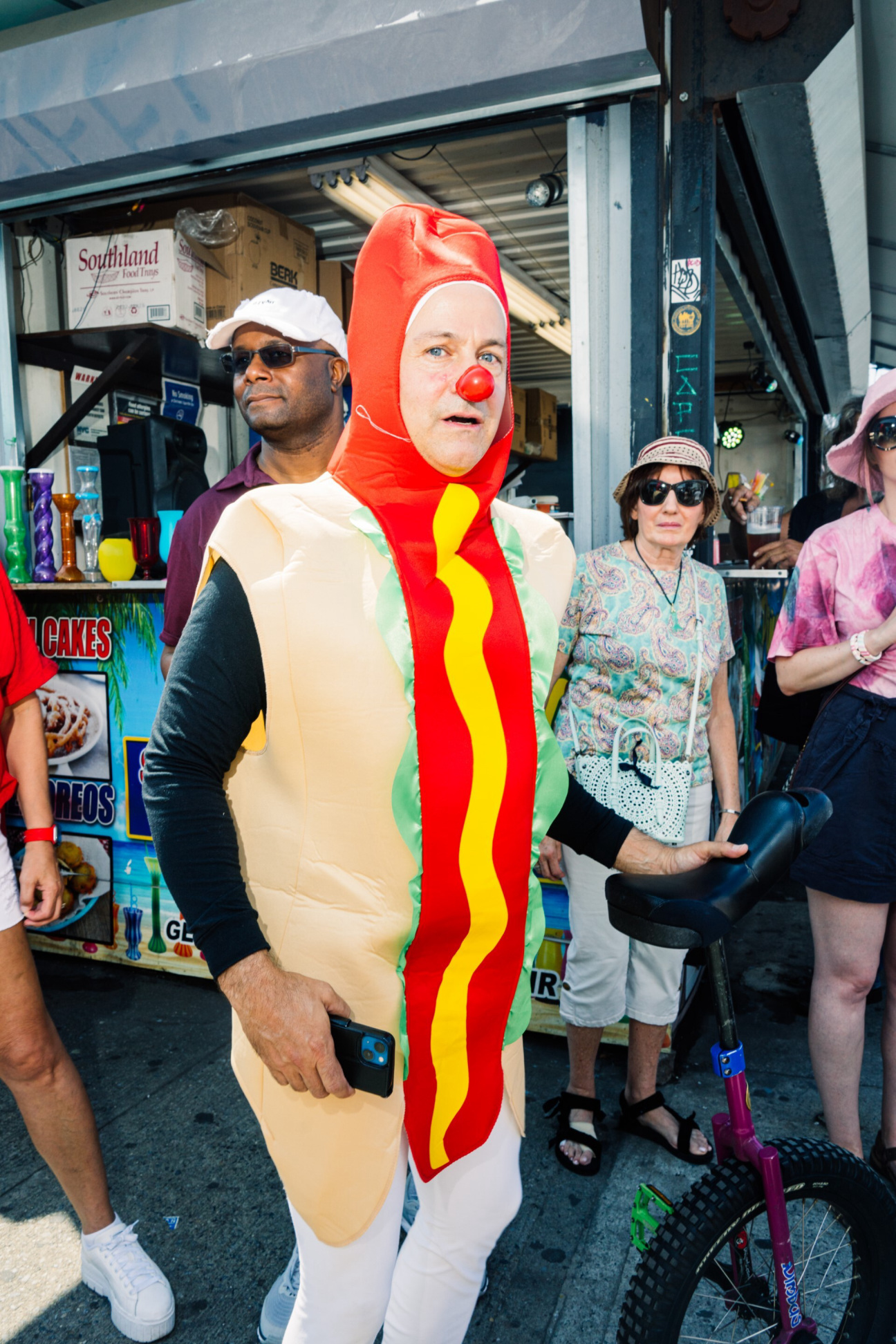
Poupay Jutharat New York, New York
CULTURED: What's your earliest memory of the holiday?
Jutharat: I went to see the fireworks last year. It was beautiful, with the grass smell, the sound of talking and laughing, the cheers when the first firework shot, and the sparks in everyone's eyes when the crowd witnessed a stunning moment of sparkling sky together.
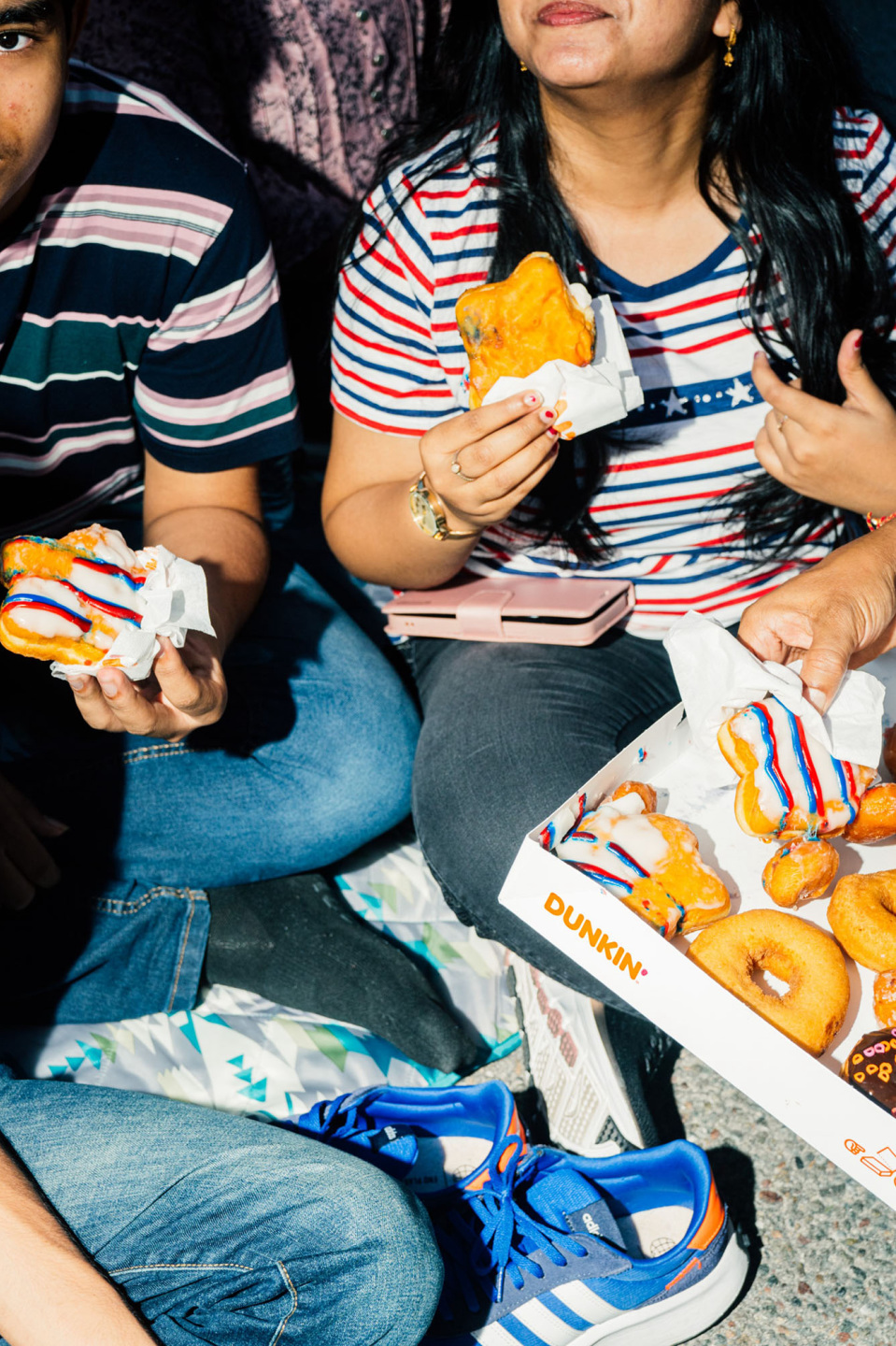
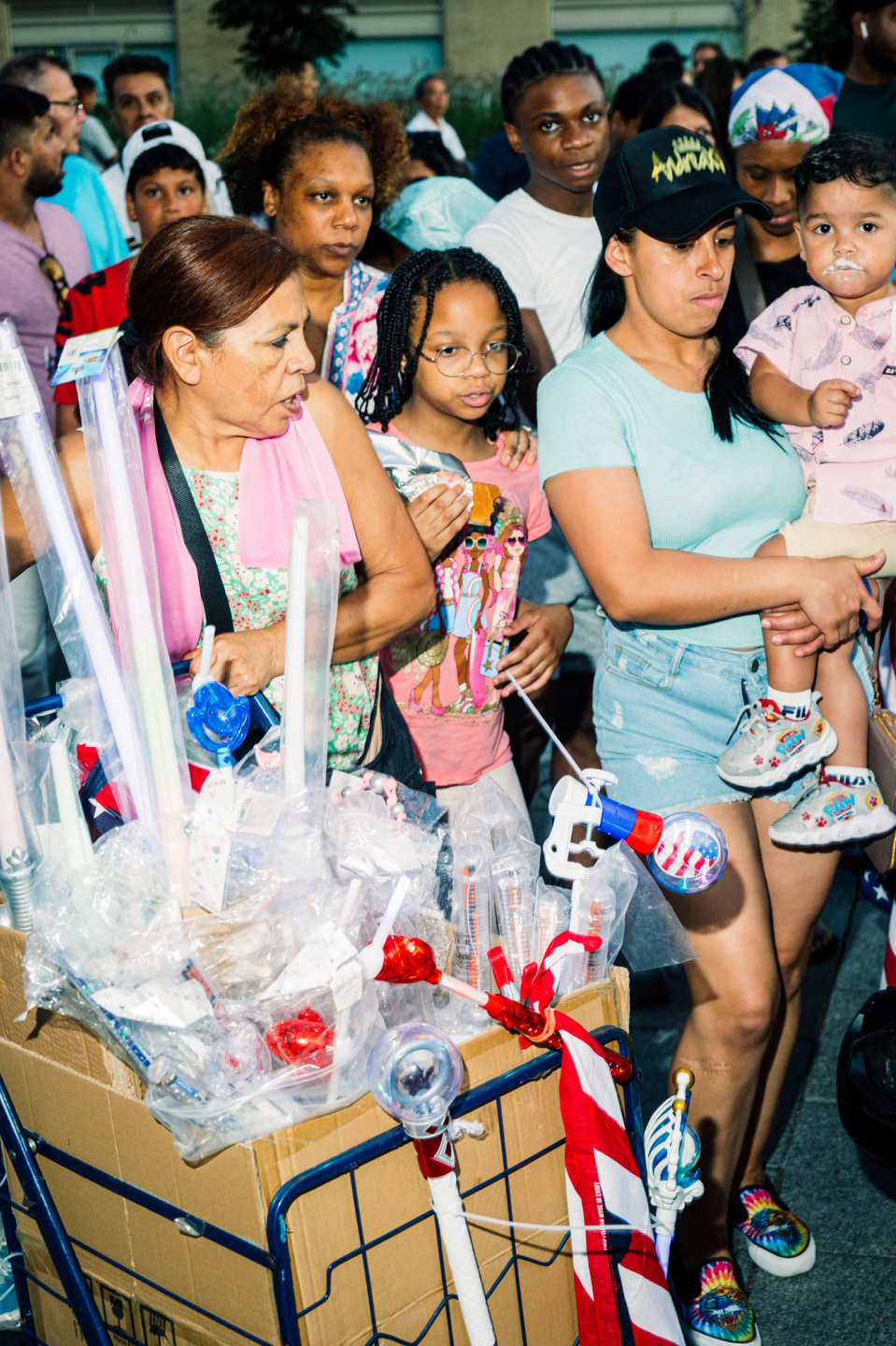
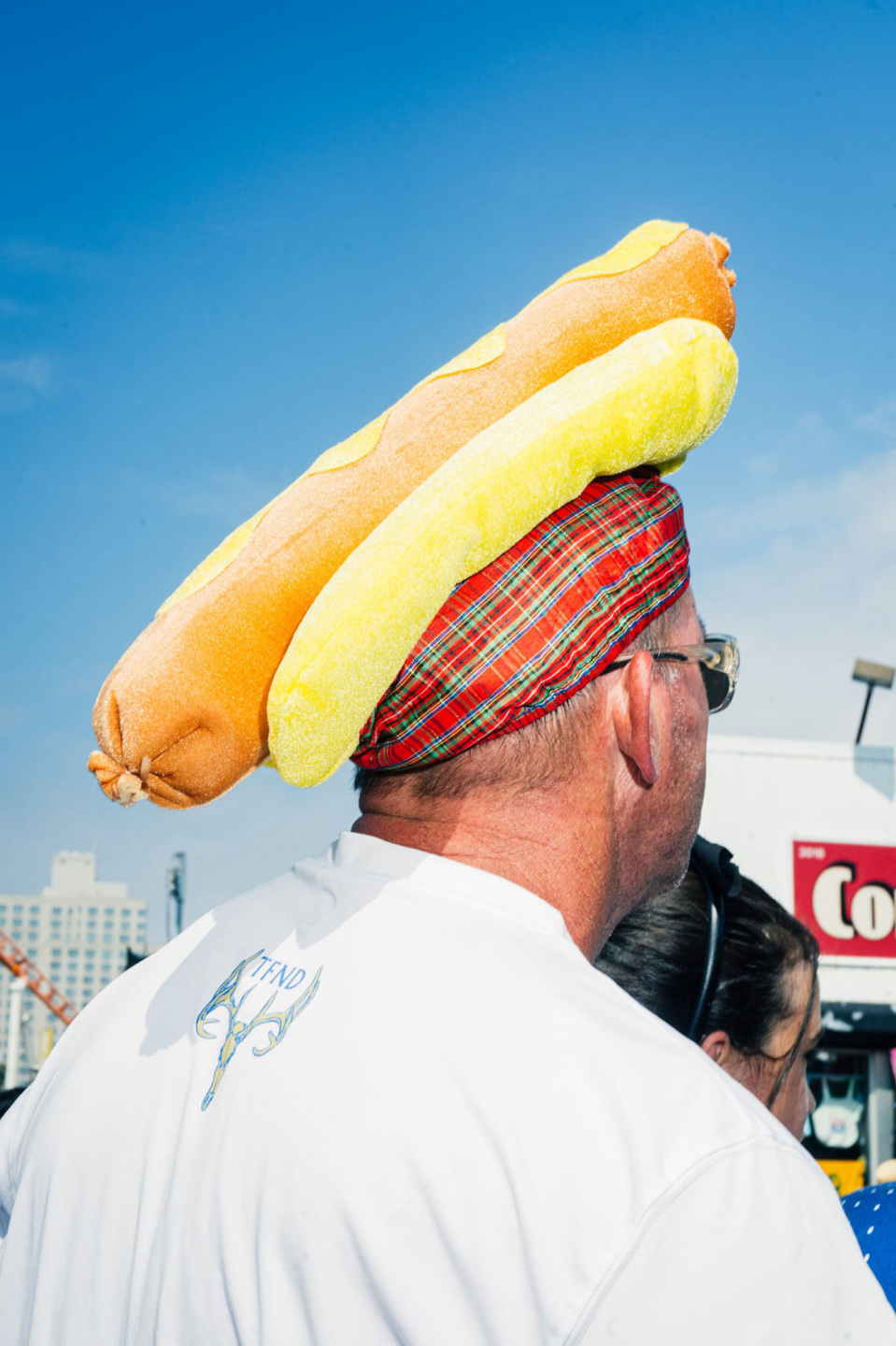
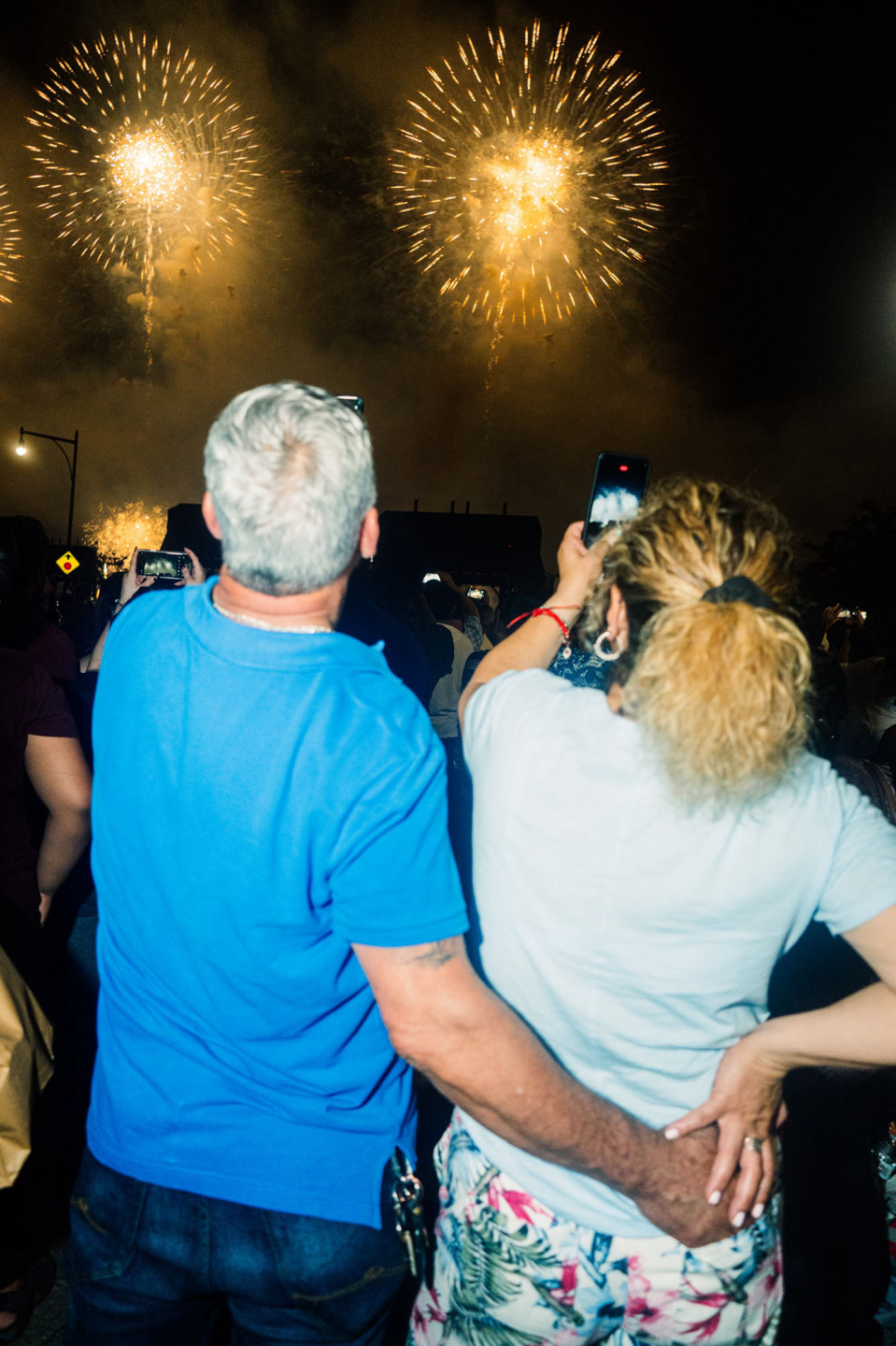
CULTURED: How does your relationship to the United States impact the way you capture your surroundings and subjects?
Jutharat: I have had so much fun living here [after moving from Thailand]. I enjoy all the craziness on the street, and am grateful for all opportunities I got here. Looking back to my archives, I can see that the fun and liveliness in my photographs come from that joyful feeling.
CULTURED: Tell us about where and how you took these photos.
Jutharat: I went to Coney Island to photograph the Nathan's Hot Dog Eating Contest in the morning. There were lots of fun things going on, so I went there to see how people participated. Then I went to Gantry Plaza State Park at night to see fireworks. It was crowded as usual. The fireworks were extremely pretty as expected.
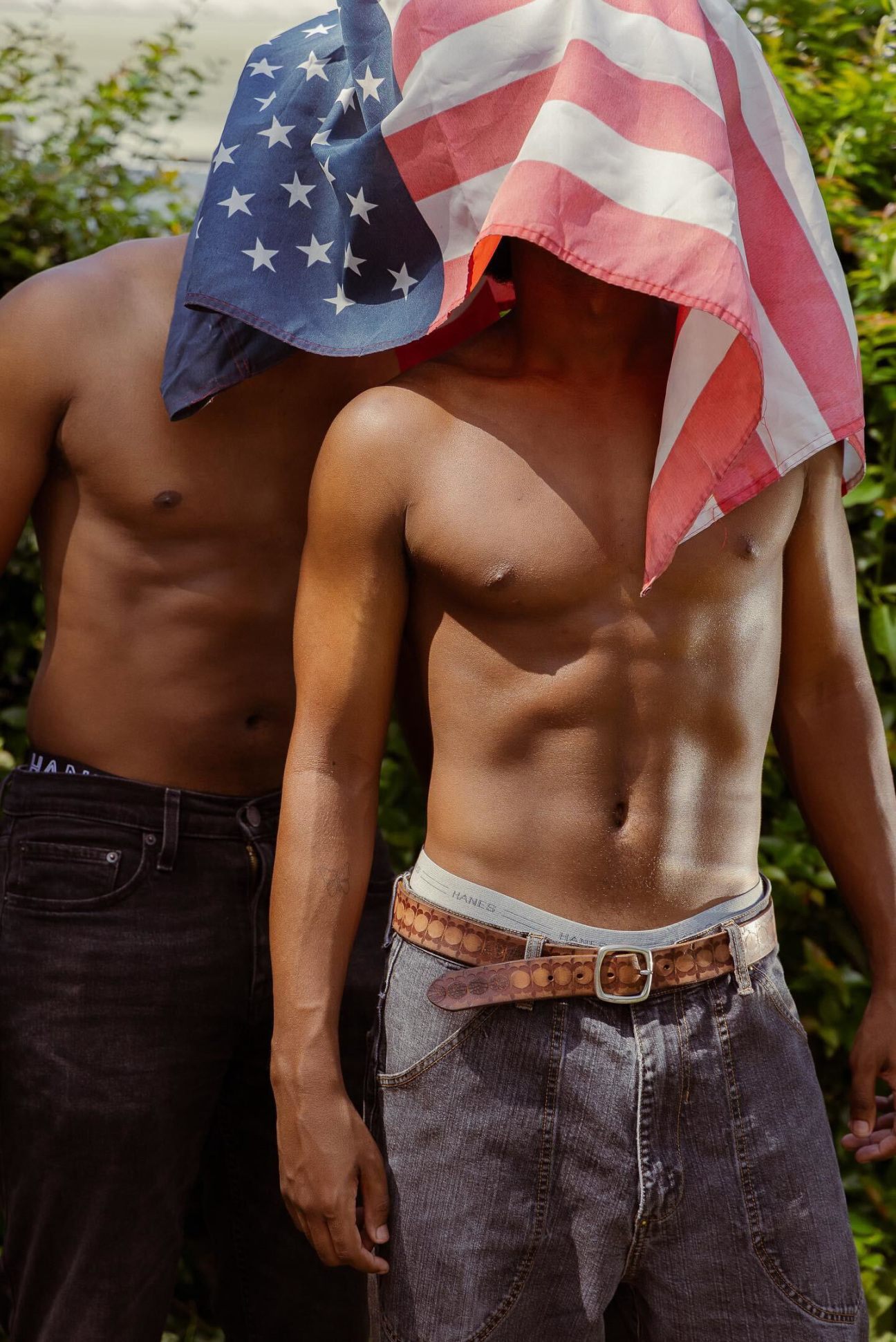
Jesse Clark Lakeland, Florida
CULTURED: What feelings does the 4th of July evoke for you?
Clark: As a young Black man growing up in the U.S., the 4th of July brings about a conflicted feeling around celebration. When I was younger, I had a blinder sense of patriotism, but as I get older I think about where I stand in all of this. It is a holiday where we come together to celebrate the birth of this nation and progress it has made every year, but with that I recognize how much work towards unity is also being undone politically in recent years.
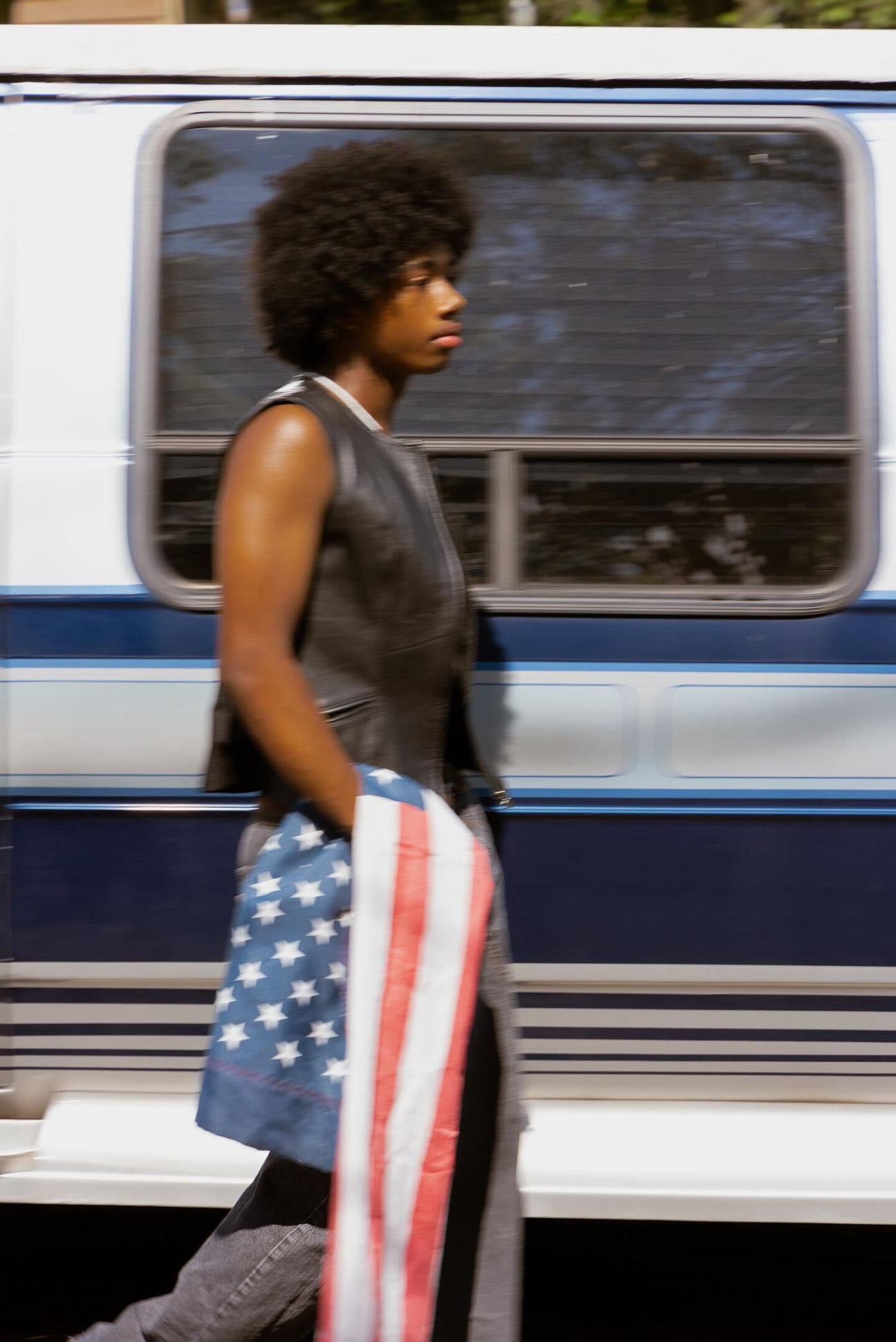
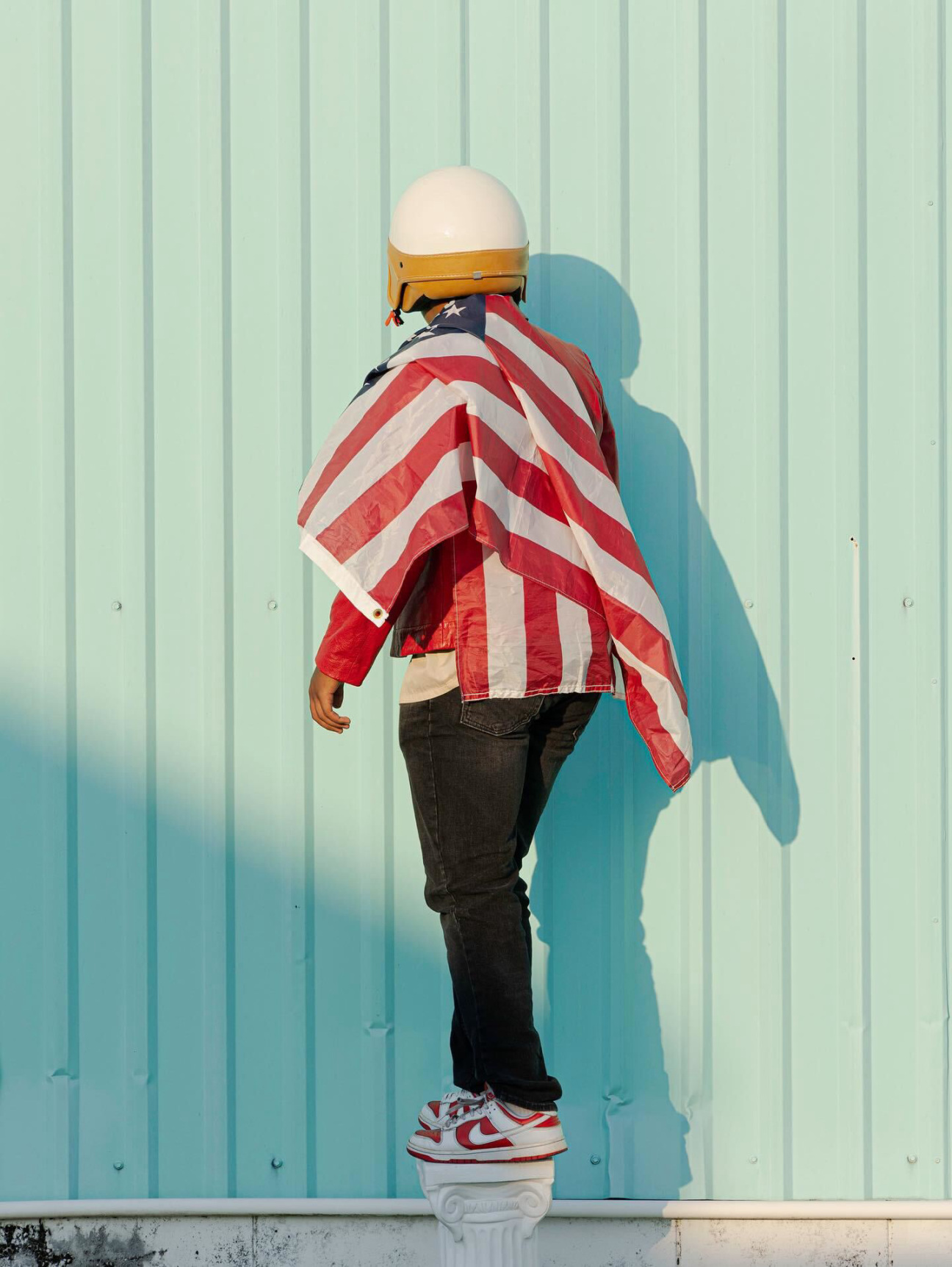
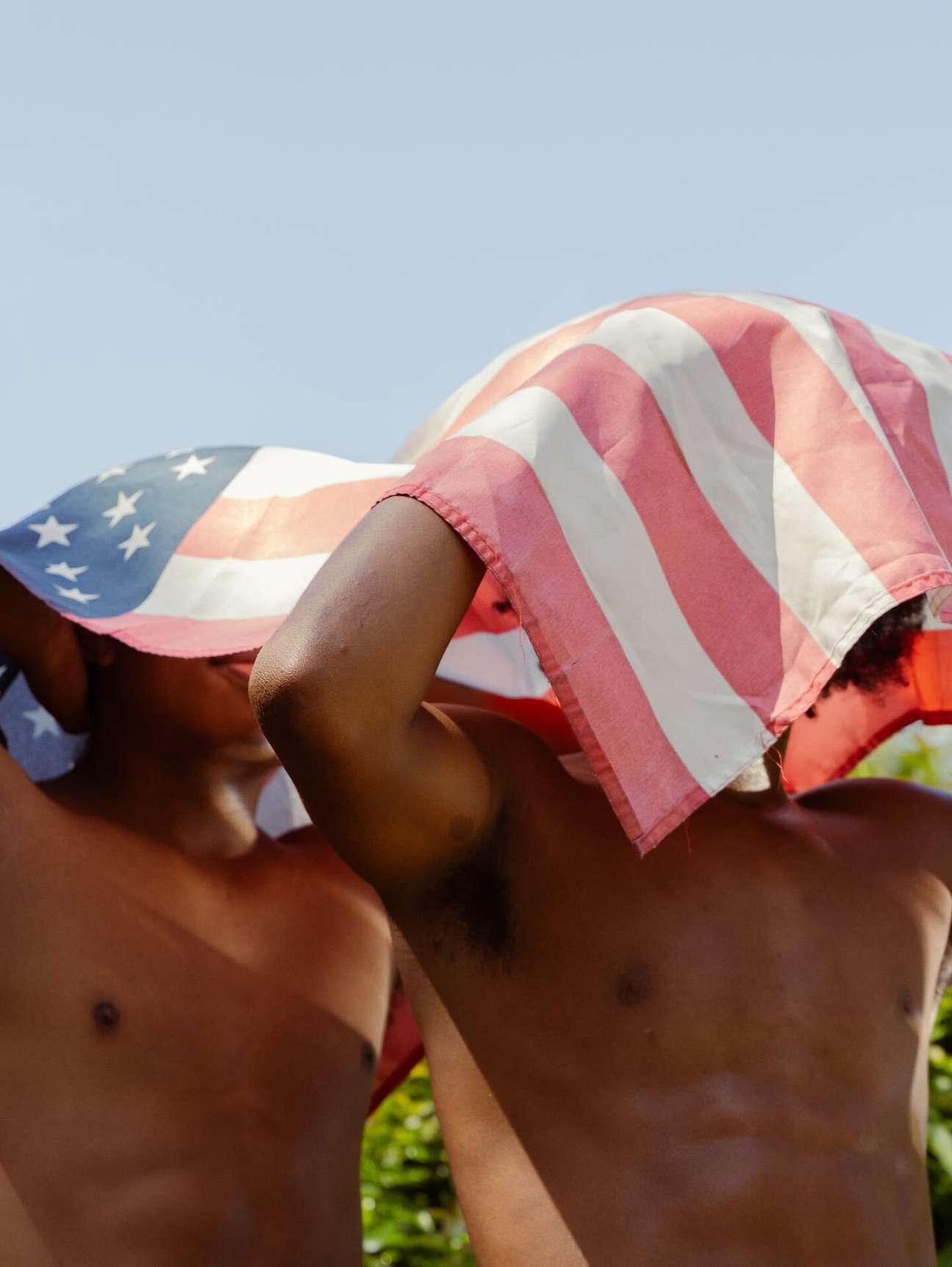
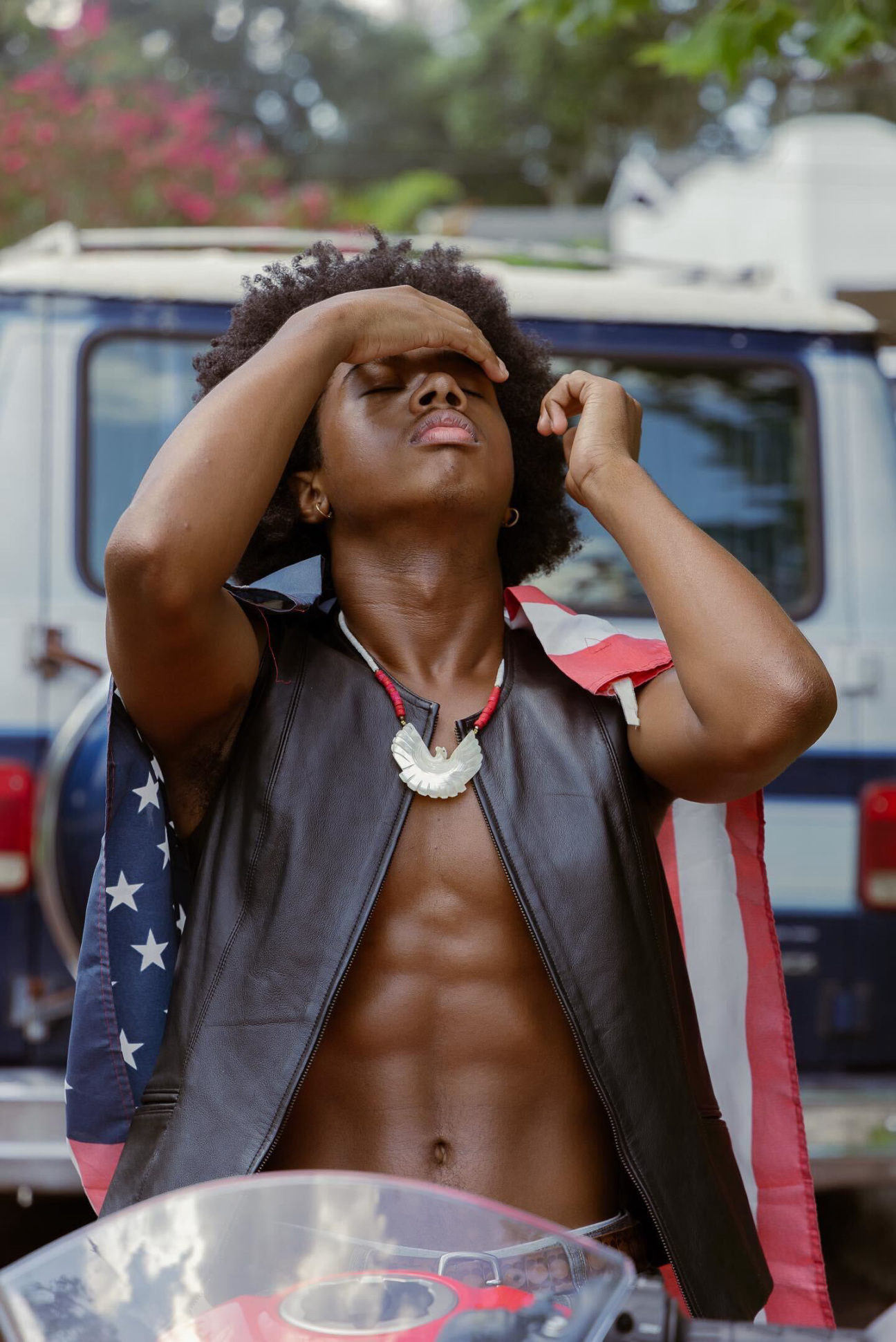
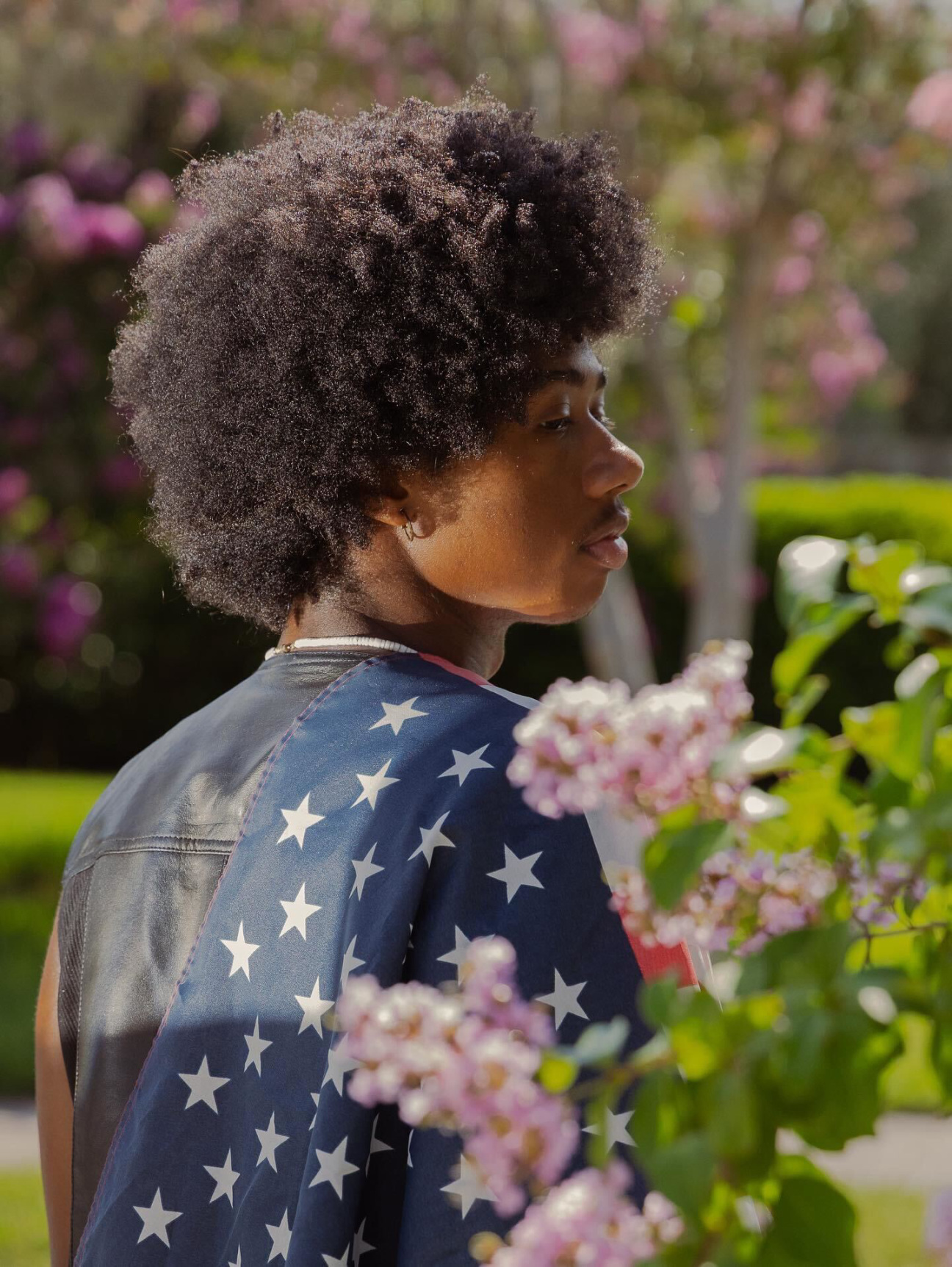
CULTURED: What’s your earliest memory of the holiday?
Clark: Watching my father shoot off fireworks in the backyard. This went from a frightening and loud experience for a very young Jesse that didn’t quite understand what was happening to what has grown to be a beautiful spectacle as I got older. The family shooting off fireworks is a tradition that we haven’t been able to keep up with in recent years, but I still enjoy it as I see the city illuminated with fireworks around this time of year.
CULTURED: How does your relationship to the United States impact your work?
Clark: I view the U.S. as a land that has provided me with a new chance at life. I was brought here from an orphanage in Haiti, so I recognize the privilege of the resources I have here to be able to live and express myself. Given what the U.S. has provided me, I understand there is much I have to give back, especially belonging to a younger generation. With that in mind, I see the camera as a tool that allows me to capture the beauty of my identity, surrounding community, and culture. I feel there are many stories and people I can document and highlight the existence of, to help move America toward positive change and unity.
CULTURED: Where are these photos set?
Clark: I shot these portraits in my hometown of Lakeland. I had a conversation with some close friends about what patriotism is today and how that may differ between people. We were reflecting on what the American flag symbolizes and what it means to wear it, especially as its connotation has shifted over the years or just in recent weeks. With many of the political changes happening, this 4th of July sparks the question: What does it mean to be a Black boy in America?
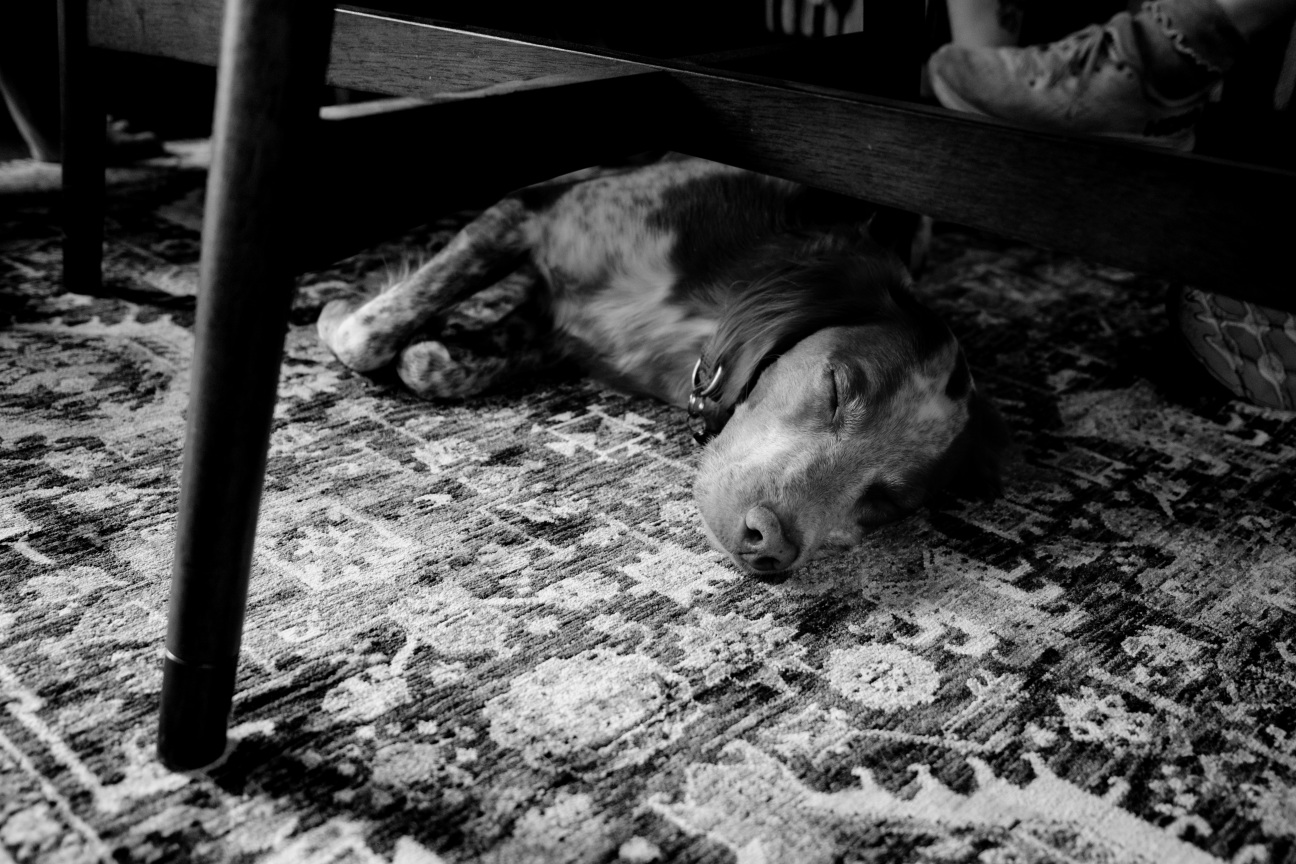
Nick Hagen Detroit, Michigan
CULTURED: What feelings does the 4th of July evoke for you?
Hagen: I know an eye roll isn’t a feeling, but I tend to check out from the patriotism of the holiday. As a kid, the idea of the United States’s unique freedom was a little confusing to me. It wasn't until I was in my early teenage years that I wondered if the near constant talk of "freedom" was just propaganda. Were other countries free? Is Canada free? I’d taken trips to Ontario with my family, and the people there didn’t appear oppressed. Are we somehow the only free people on Earth? It's absurd for America to brag like it has a monopoly on freedom and to proclaim itself as the best country in the world. There are a lot of reasons why America doesn’t have a just society, but the overwhelming lack of interest in having one is shameful. But, who needs justice when you’re free?
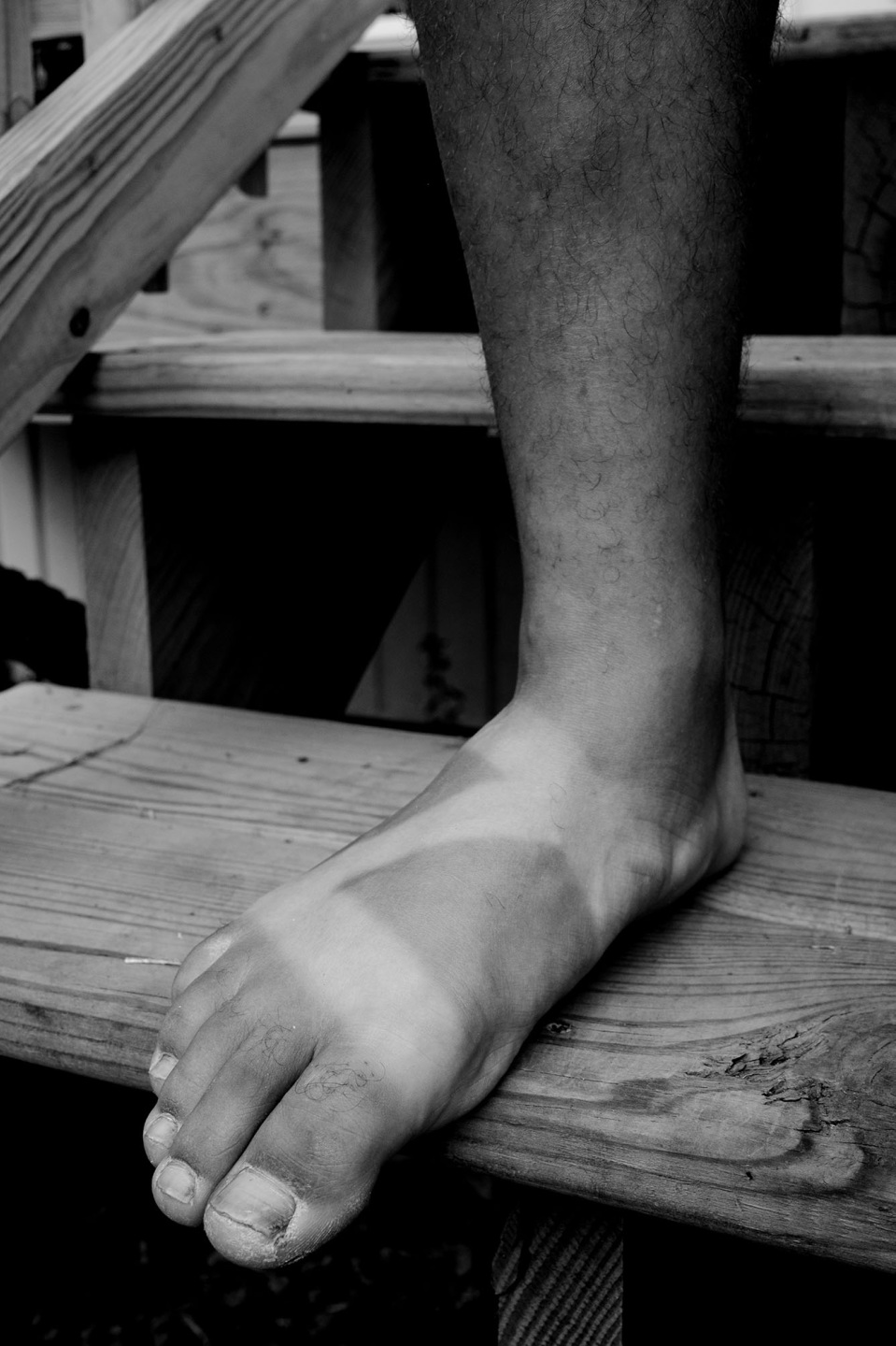
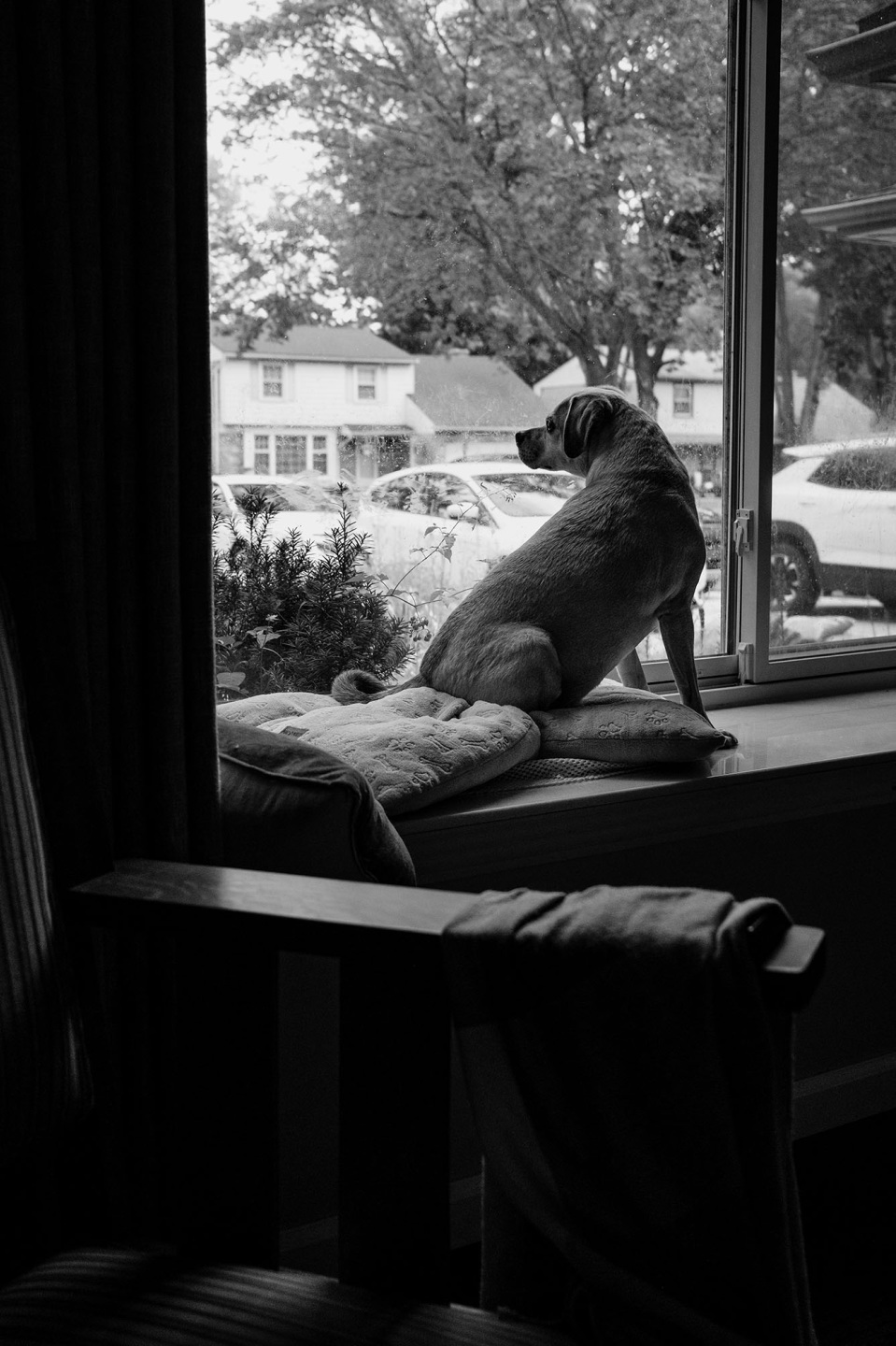
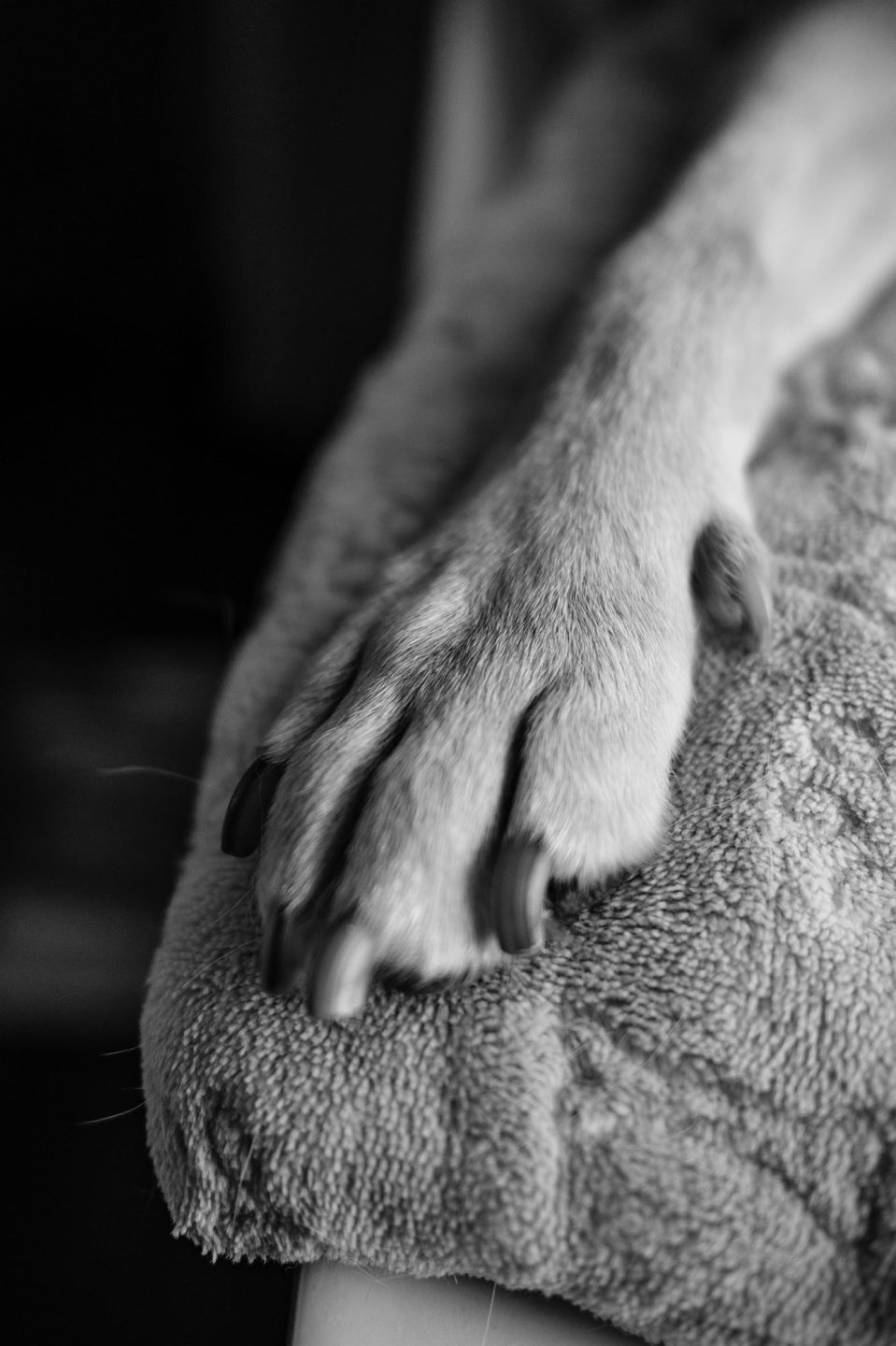
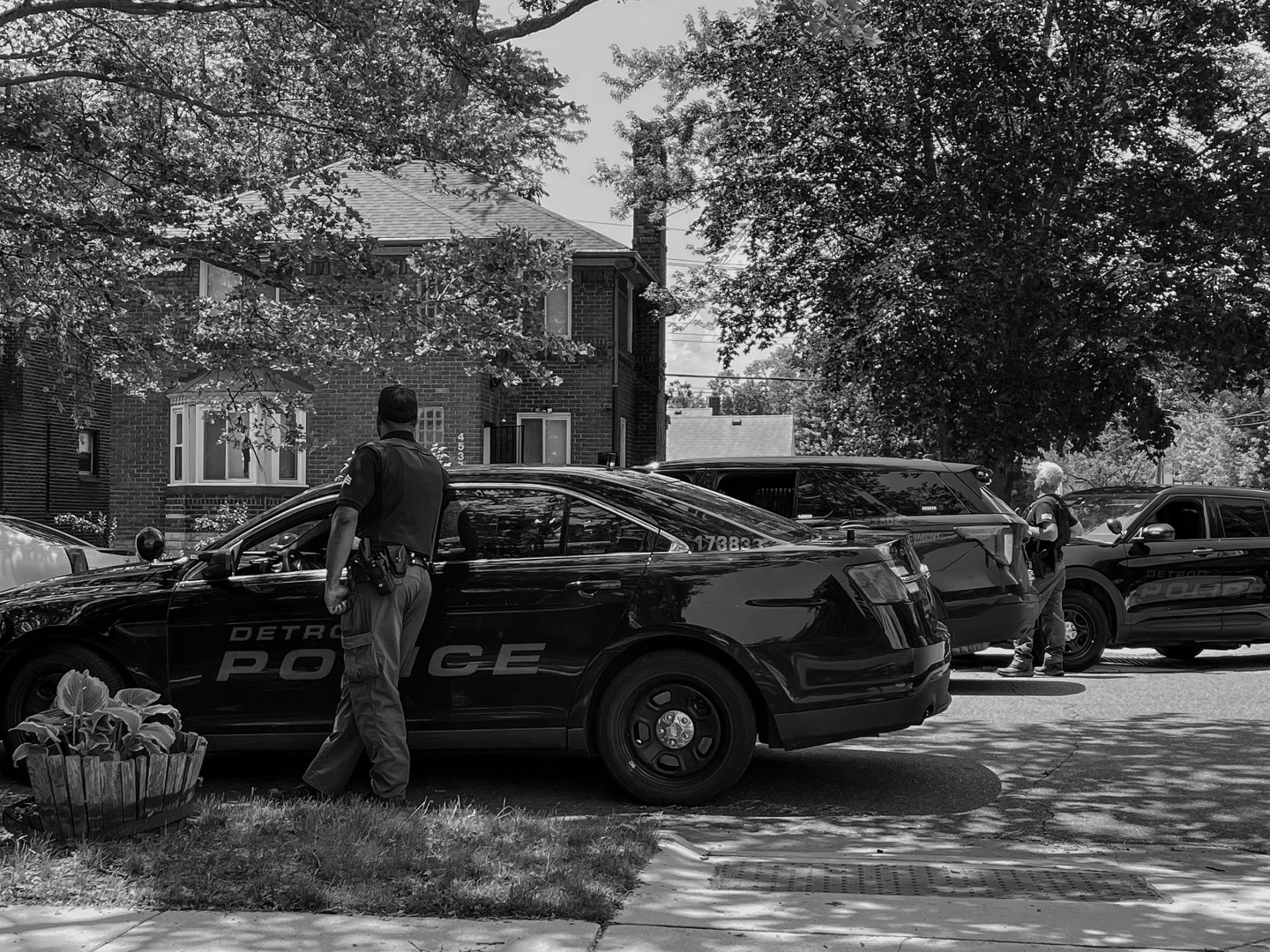
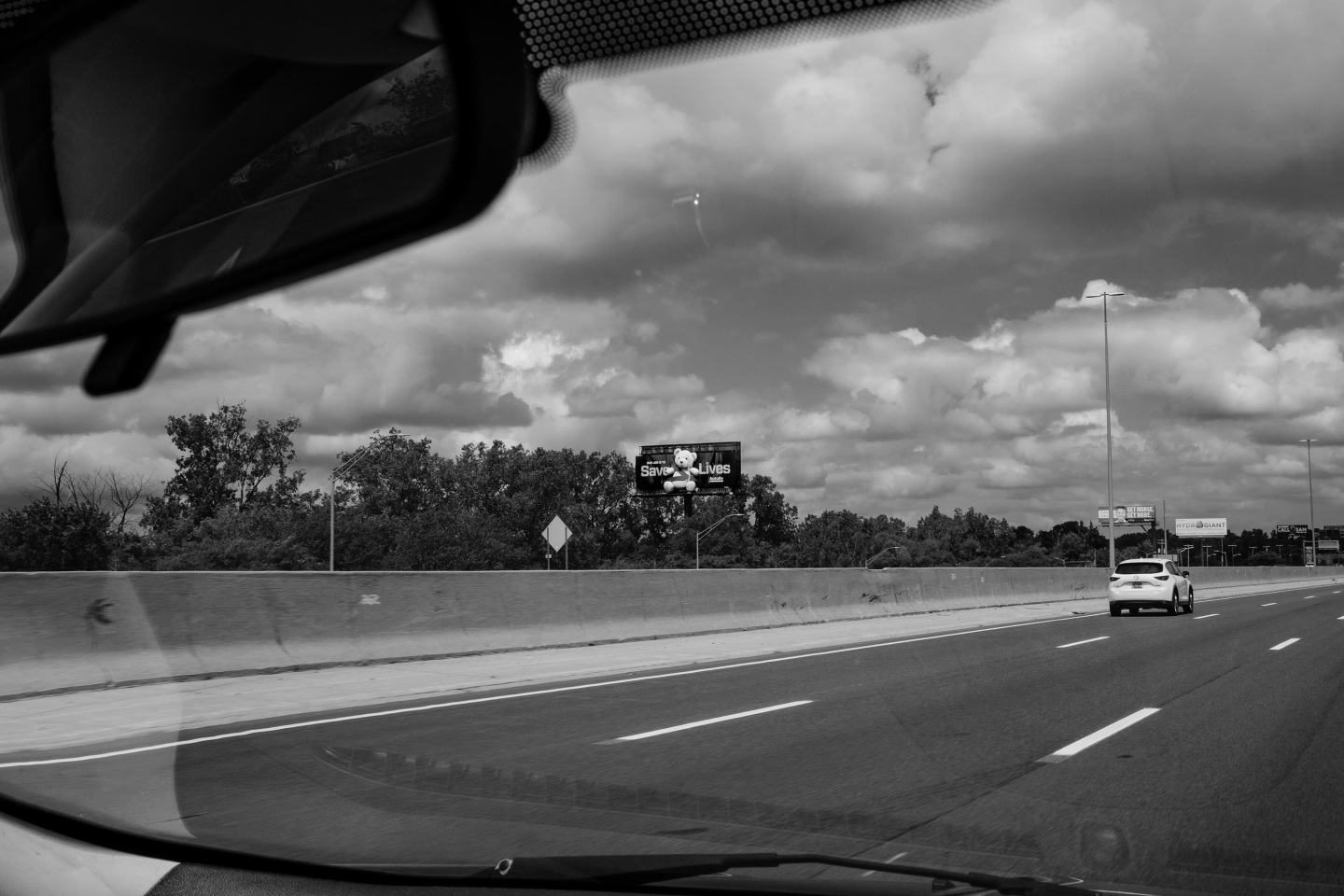
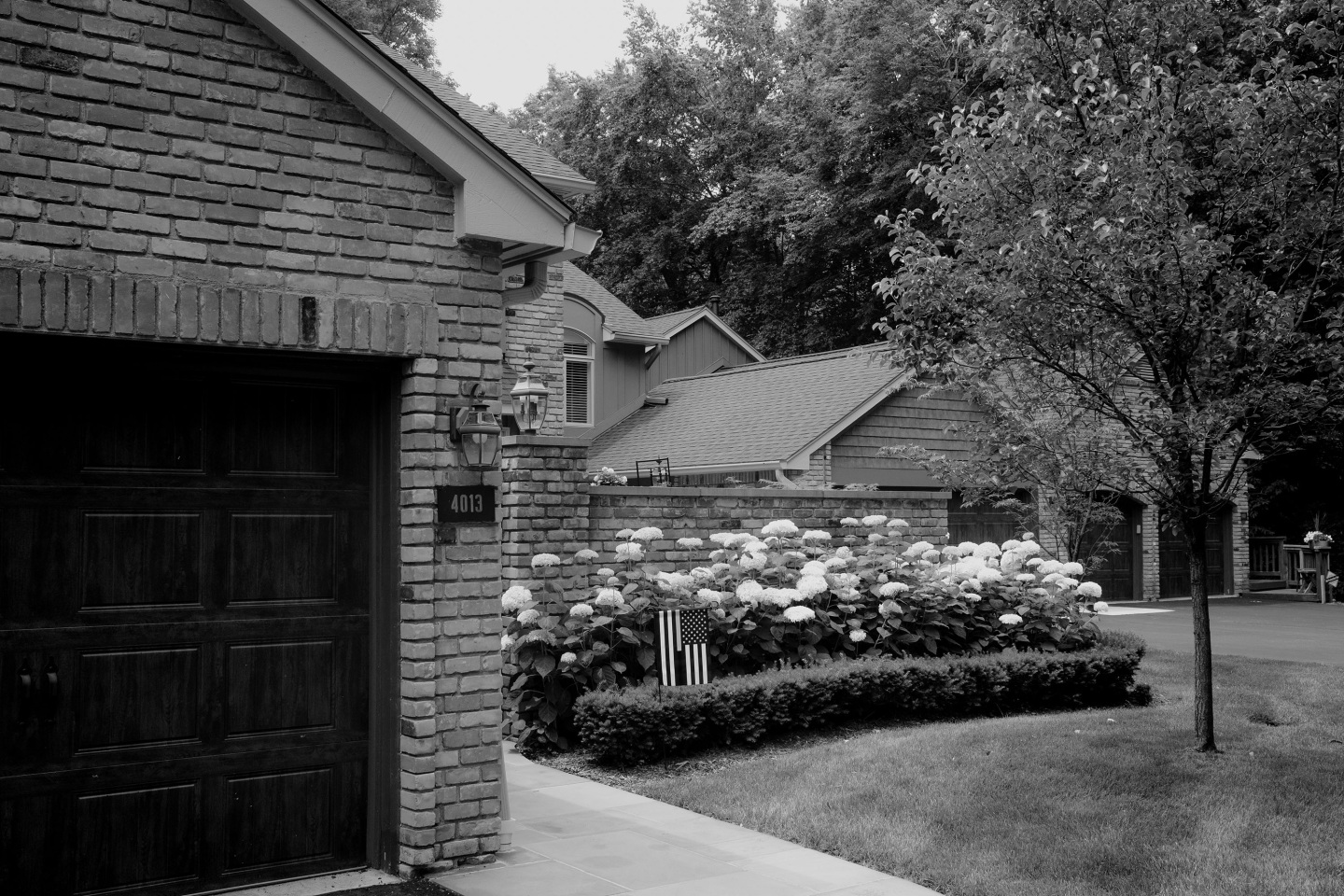
CULTURED: How does your relationship to the United States impact the way you capture your surroundings and subjects?
Hagen: It impacts the stories I’m interested in more than it impacts my literal practice. I’m optimistic that the stories that I work on get added to the pile of other stories covering similar topics, and that incremental change occurs, inspired by all the coverage. I feel lucky to be a part of moving the needle towards equity even though it's a glacial process. It’s very obvious that I don’t hold America in the highest esteem, but I don’t let that bias me when working journalistically. Regardless of my own feelings, I share perspectives.
CULTURED: When did you take these photos?
Hagen: I brought a little camera with me wherever I went for the past 5 days or so, which is something I never do. My initial idea was to photograph dogs because many of them get spooked by fireworks and run away during the 4th of July. Dogs are total innocents who get totally stressed out by this violent tradition, and there’s a way too on the nose metaphor in that. A friend of mine has outrageously pronounced sandal tan lines on his feet; they reminded me so much of summer and my time working as a photographer at a summer camp.
The cops in the photo were outside of my neighbor’s house as I was writing out these answers on July 4th. He was driving two of his friends when he allegedly ran a stop sign and was pulled over. The police cuffed him and put him in the back of a squad car and had his friends keep their hands on the hood of the squad car while they searched his car. They were stressed and pissed and eventually the police gave my neighbor a ticket and let them all go. Two other squad cars came while they searched his car, so around seven police were present because he ran a stop sign. That probably wouldn’t have happened if they were three white men in a car. I talked to one of his friends, and he said it felt like overkill but he’s been in worse situations. Excessive police force is about as American as anything.
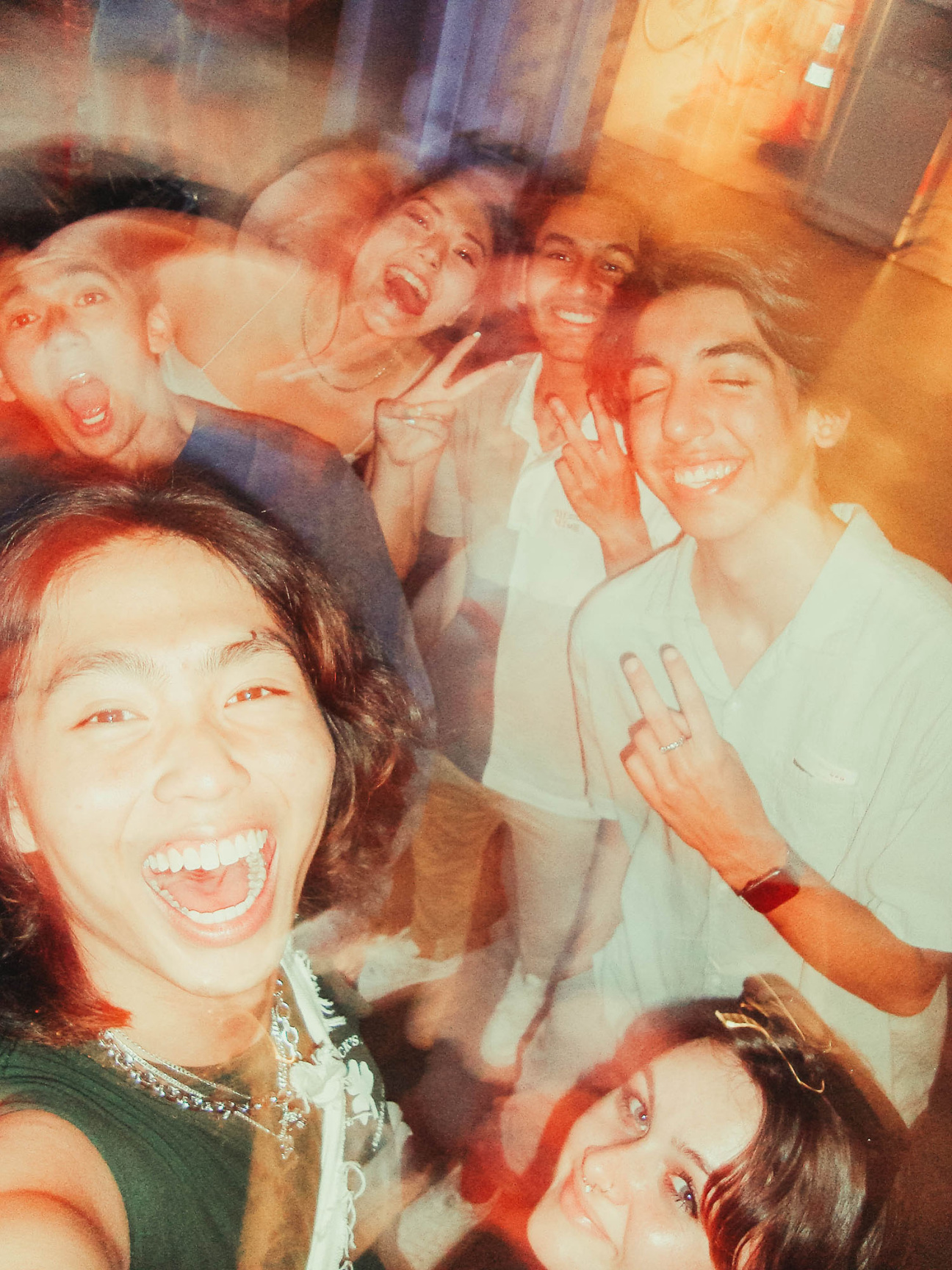
Ryo Sato Atlanta, Georgia
CULTURED: How would you describe your practice?
Ryo Sato: In my work, I actively seek opportunities to capture movement, spontaneity, and raw energy in various subjects and environments. Capturing motion in my photography enables the audience to feel the adrenaline, immerse themselves at the moment, and experience the captivating spirit of the captured scene. It's about freezing a fleeting moment of action and sharing the subjects’ narrative, emotions, and essence.
CULTURED: What comes to mind when thinking of the 4th of July?
Sato: It's something where I think of fireworks and nothing else. It represents an uglier side of the country's history, and I do not want to be a part of it. As an immigrant, it always felt like something I needed to participate in to fit in.
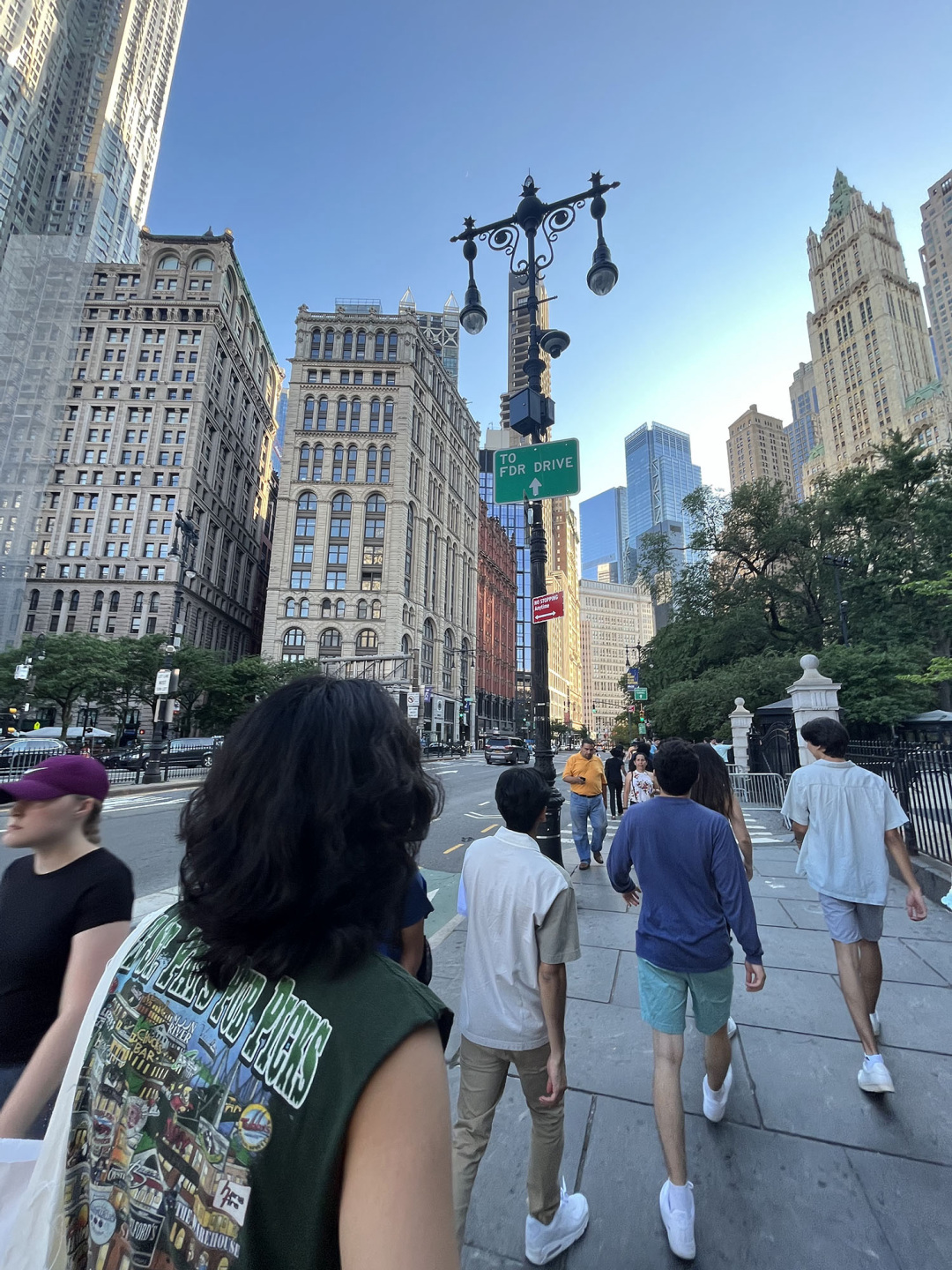
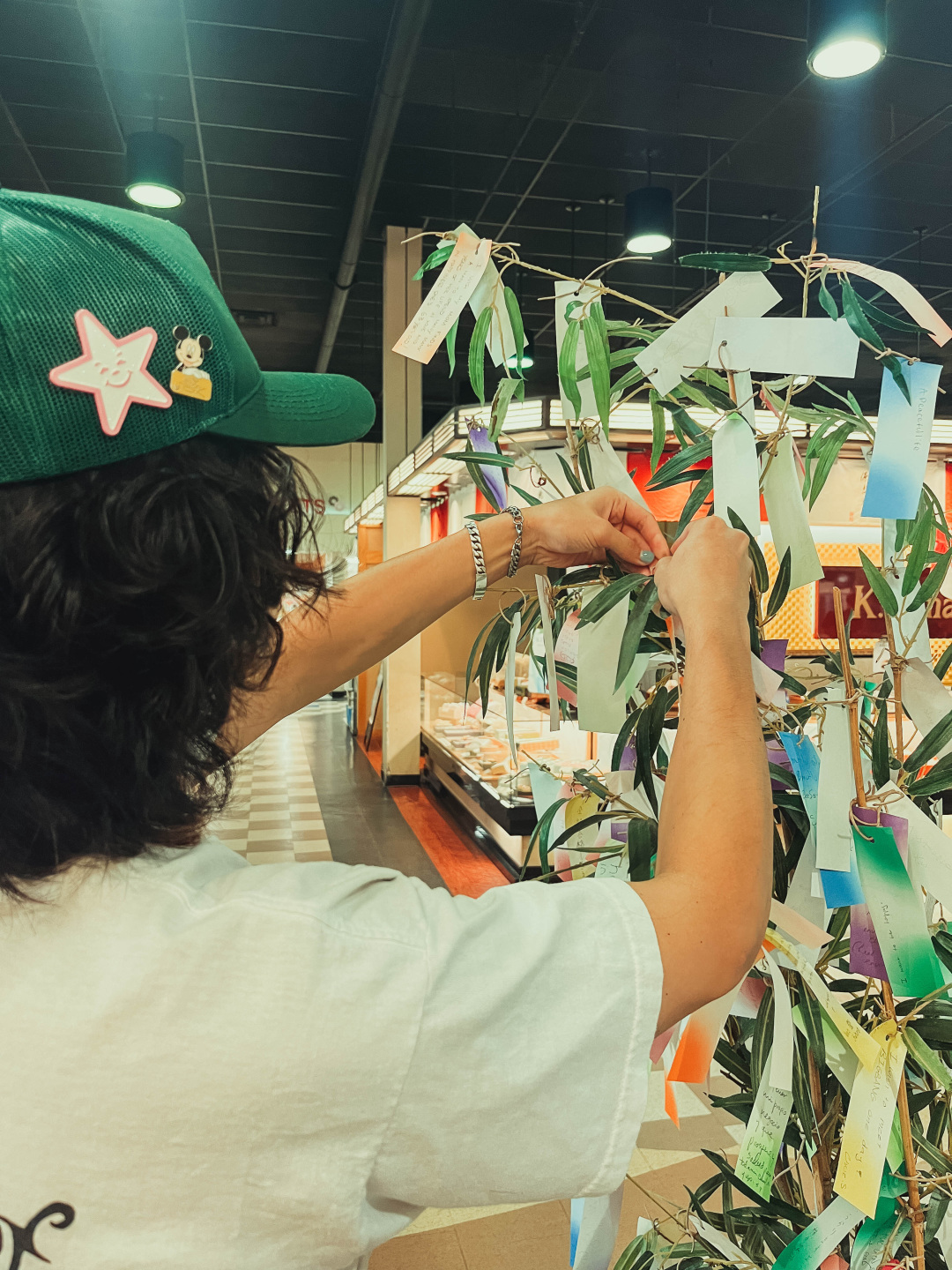
CULTURED: How does your relationship to the United States impact the way you capture your surroundings and subjects?
Sato: My relationship with the United States has dramatically impacted my photography. I am grateful for the opportunities and chances this country has given me, and I incorporate my experiences and the humor I've picked up from being here. I enjoy taking common English phrases literally and portraying them in my photos, adding a playful and unexpected twist to my work.
CULTURED: Where did you take these photos?
Sato: These are photos from my trip to New York last year. I visited my friends since July 4th was one of the days they were free during their internships. There was no other reason, and we did not celebrate the holiday. That is a photo of me putting my wish up for Tanabata, a Japanese celebration on July 7th originating from Japanese folklore. That is the holiday we celebrated as a family, and I continue to celebrate it even though I live alone now.
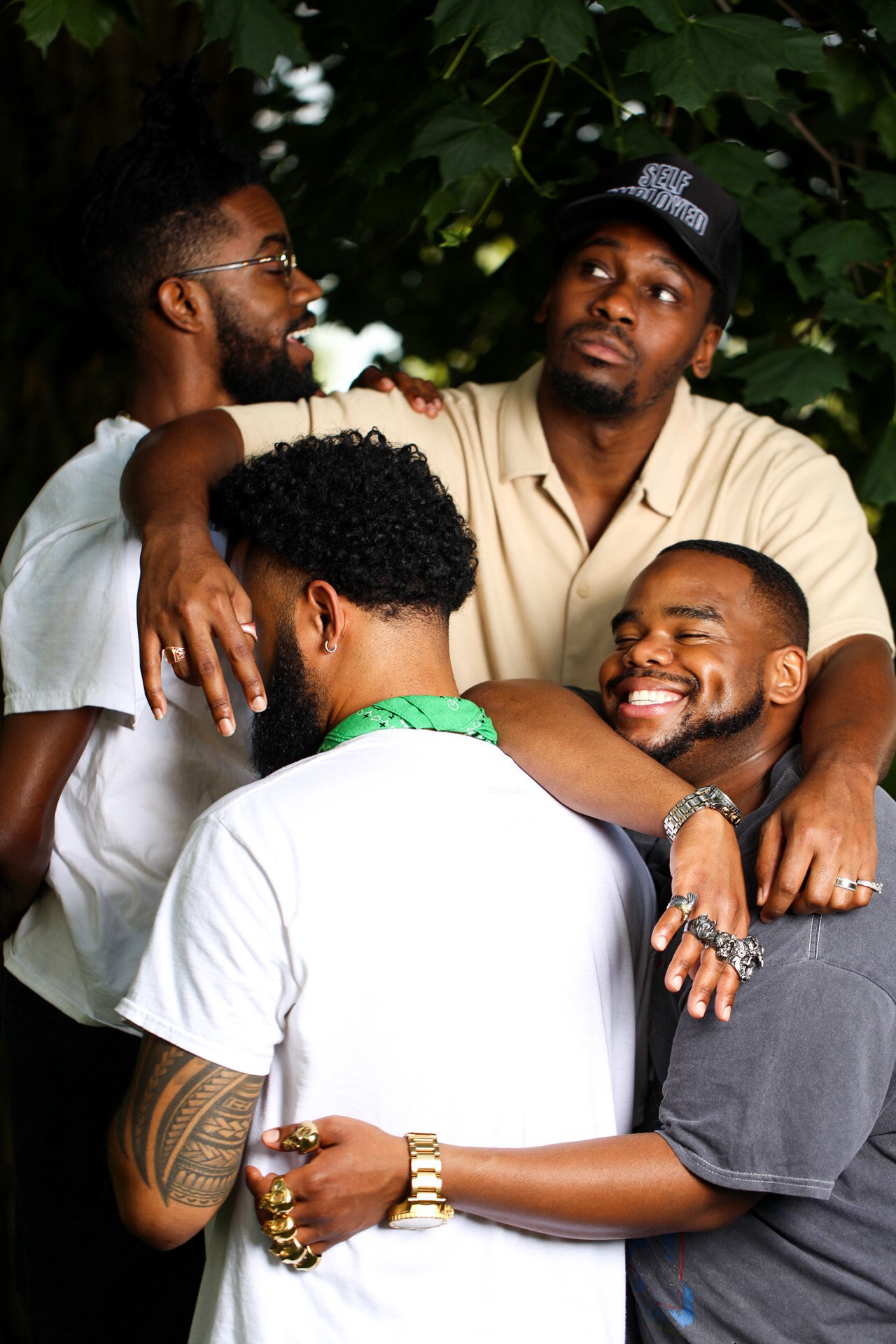
Kendra Maria Columbus, Ohio
CULTURED: How would you describe the ethos of your practice?
Kendra Maria: My practice has been centered on joy and the intimacy of that joy with stillness in time. I draw inspiration from the mountains of photo albums put together by my mother and grandmother as a way to honor the past and capture the future. My experiences as a Midwestern Black girl with family shaped by the Great Migration has led me to trace my lineage around the country, and connect to others in the African Diaspora.
CULTURED: What feelings does the 4th of July evoke for you?
Maria: I’ve always seen it as a day of connection, rest, and reflection on the history of this country and the marginalized communities impacted.
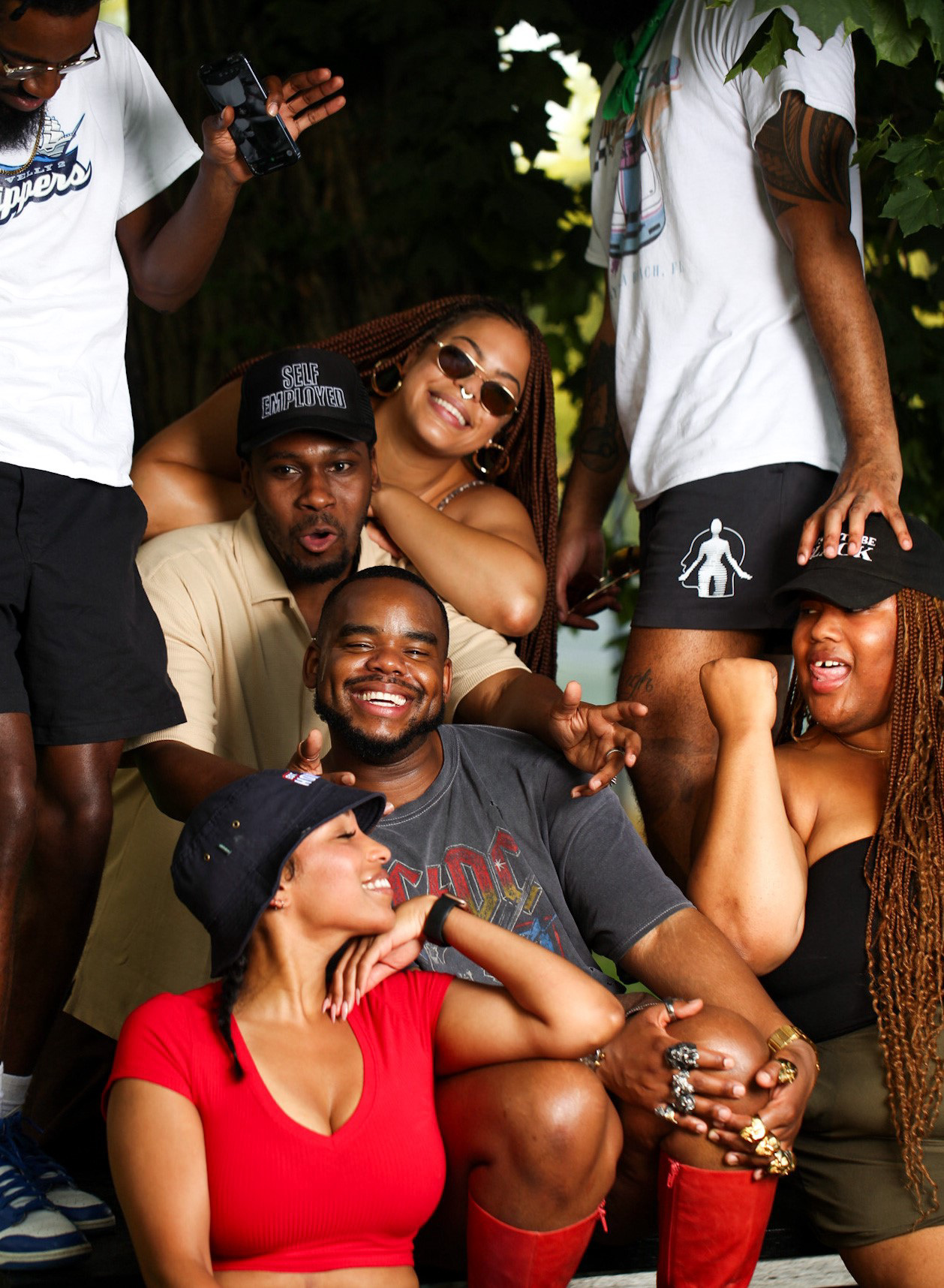
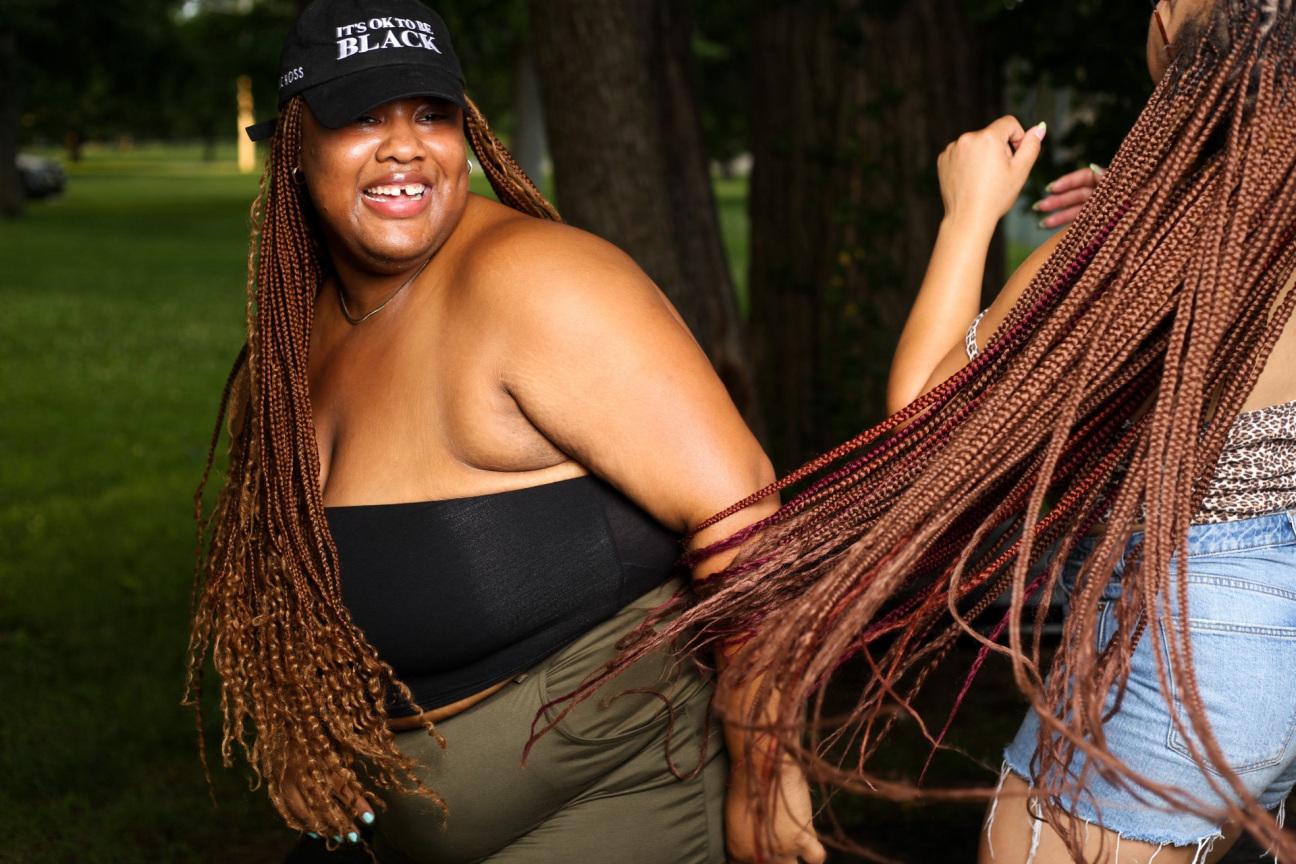
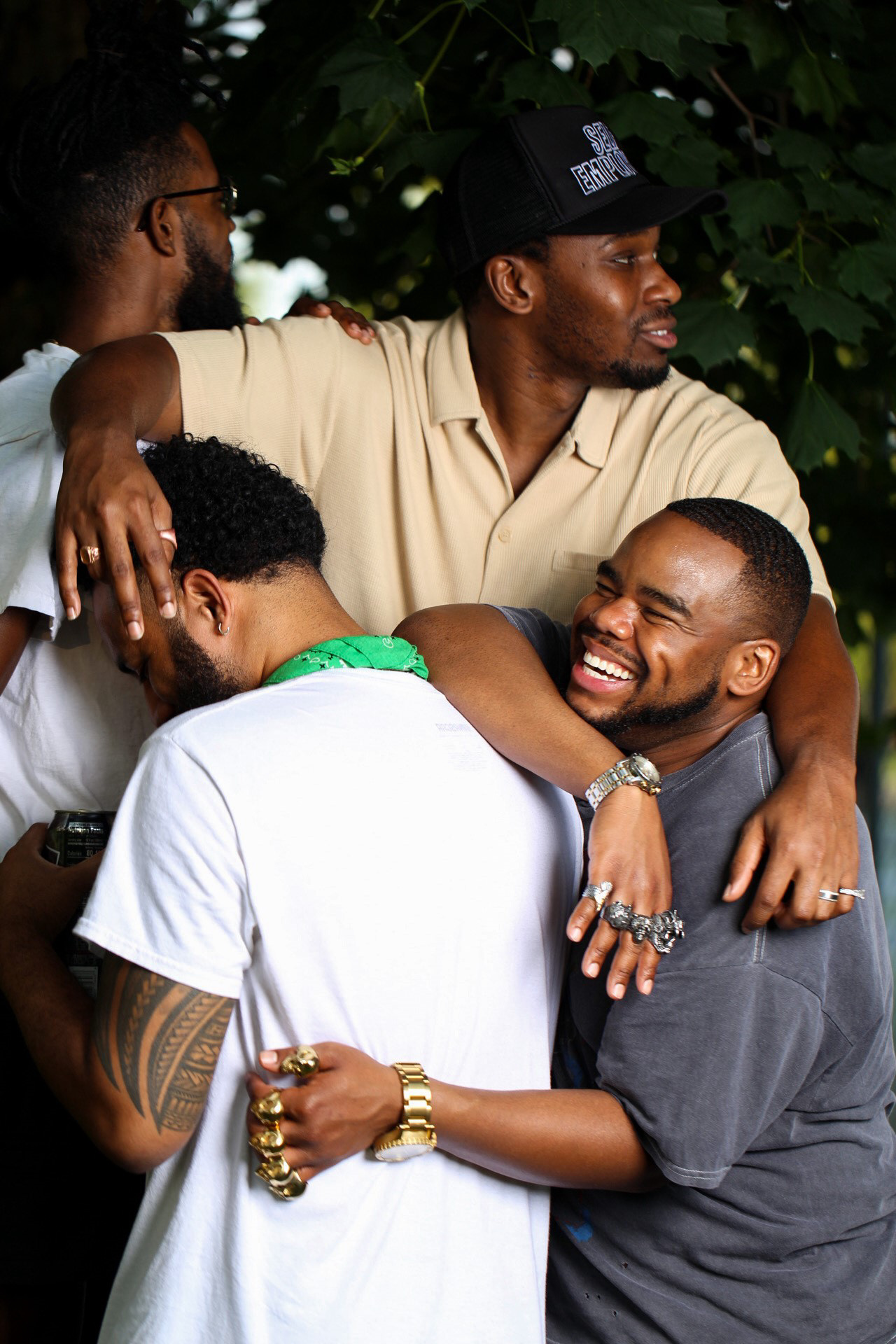
CULTURED: What’s your earliest memory of the holiday?
Maria: My earliest memory of the 4th is spending every holiday with my grandmother. My mom was a city bus driver, so she worked a lot of holidays for double pay, and my grandma lived in a highrise apartment downtown. I would watch the fireworks from her window and she would do my hair or cook me my favorite meal. I did that every 4th until she passed when I was 17. Thank god for my community because I’ve felt lost on how to spend the day since.
CULTURED: How does your relationship to the United States impact the way you portray your surroundings and subjects?
Maria: My relationship to the United States has always been through my community, which has largely been a source of joy and connection. We are all very aware of the issues this country holds, but I do view it as an outside factor. Pain and resilience doesn’t define who we are, it is just one part of our story. I took these photographs of my friends on the 4th. The energy and joy I wanted to capture is everyday life for me.
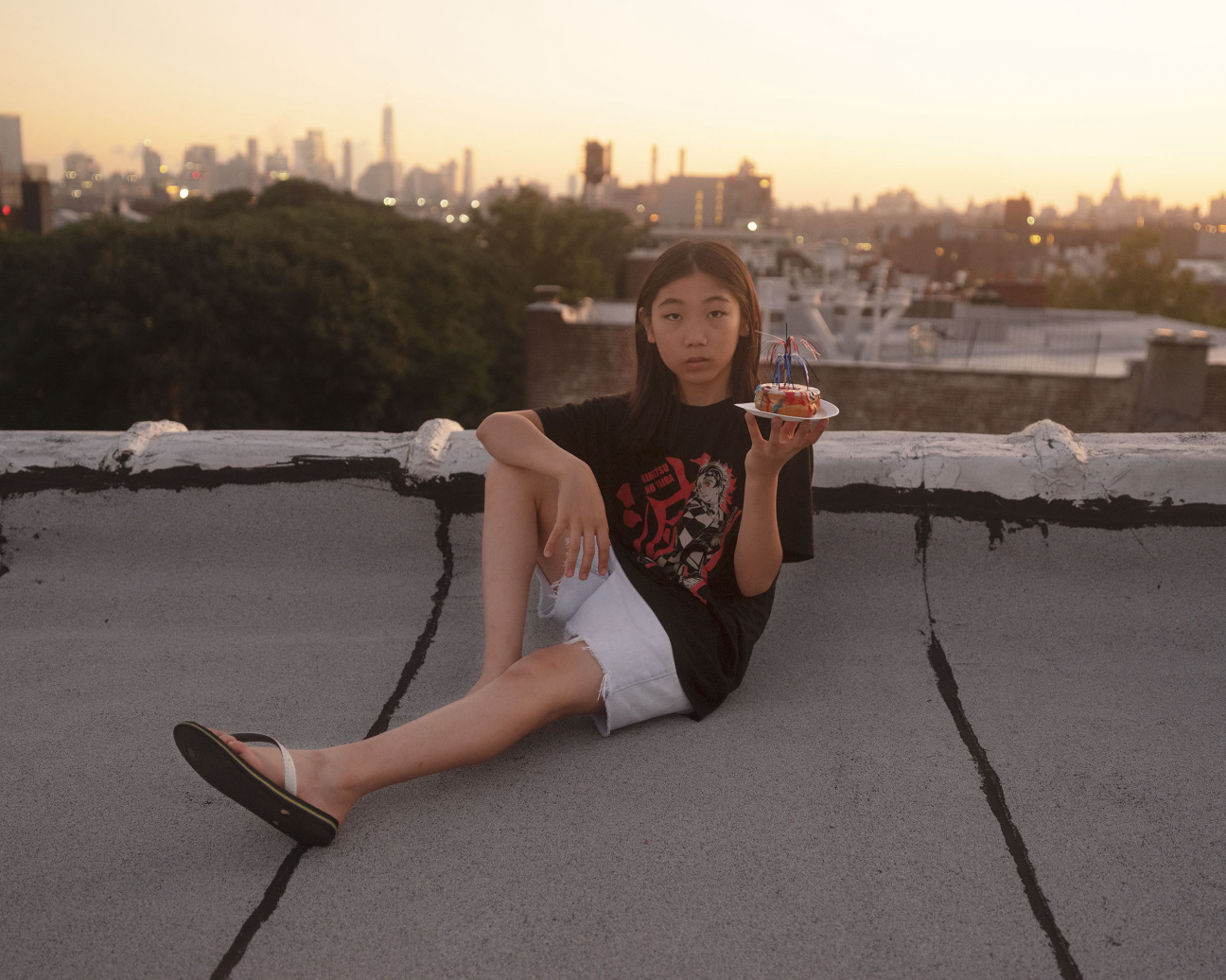
Fumi Nagasaka New York, New York
CULTURED: How would you describe the ethos of your practice?
Fumi Nagasaka: I focus on finding the connections with my subjects and I let the rest come naturally.
CULTURED: What feelings does the 4th of July evoke for you?
Nagasaka: Happiness! July 4th is like a celebration of the summer.
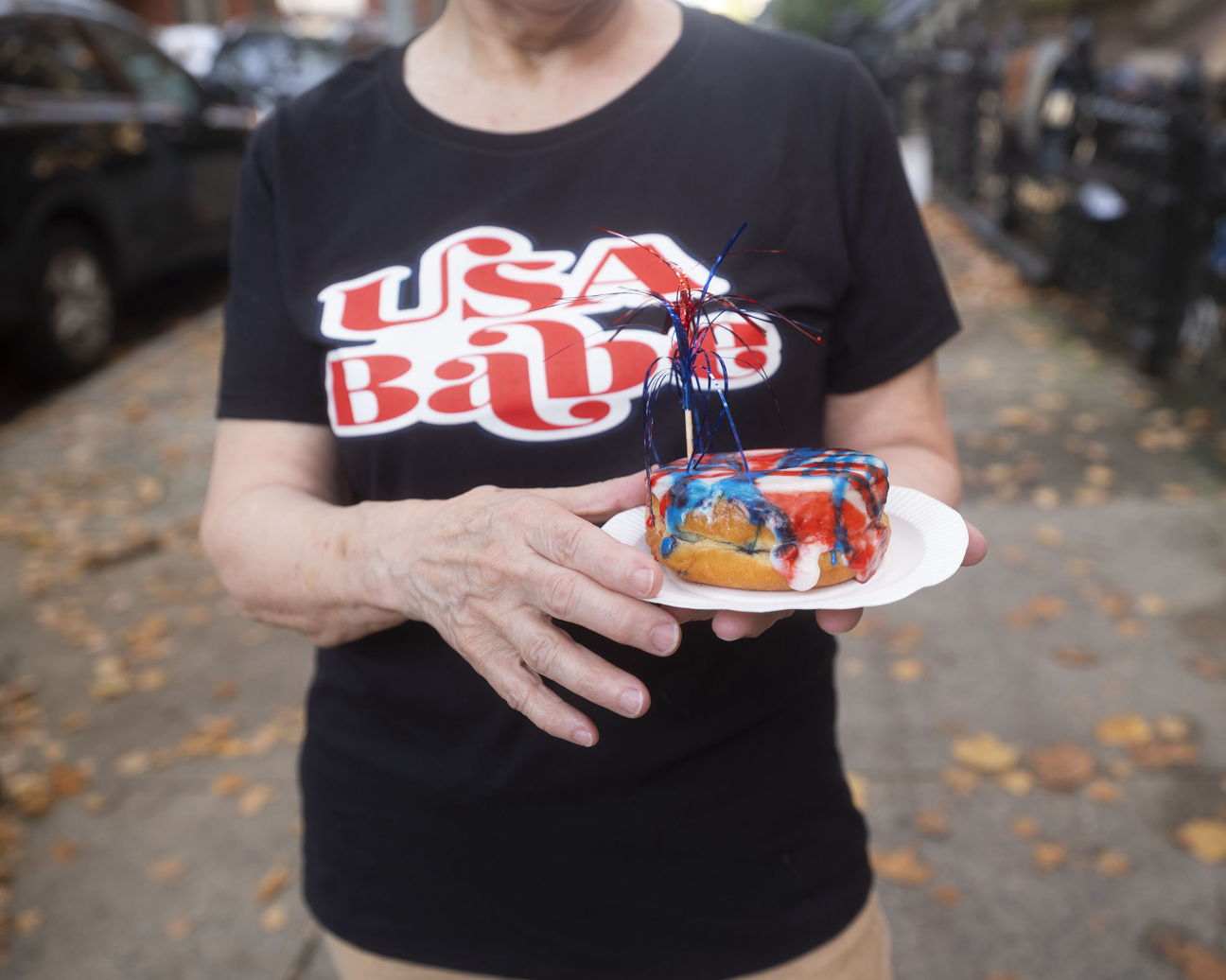
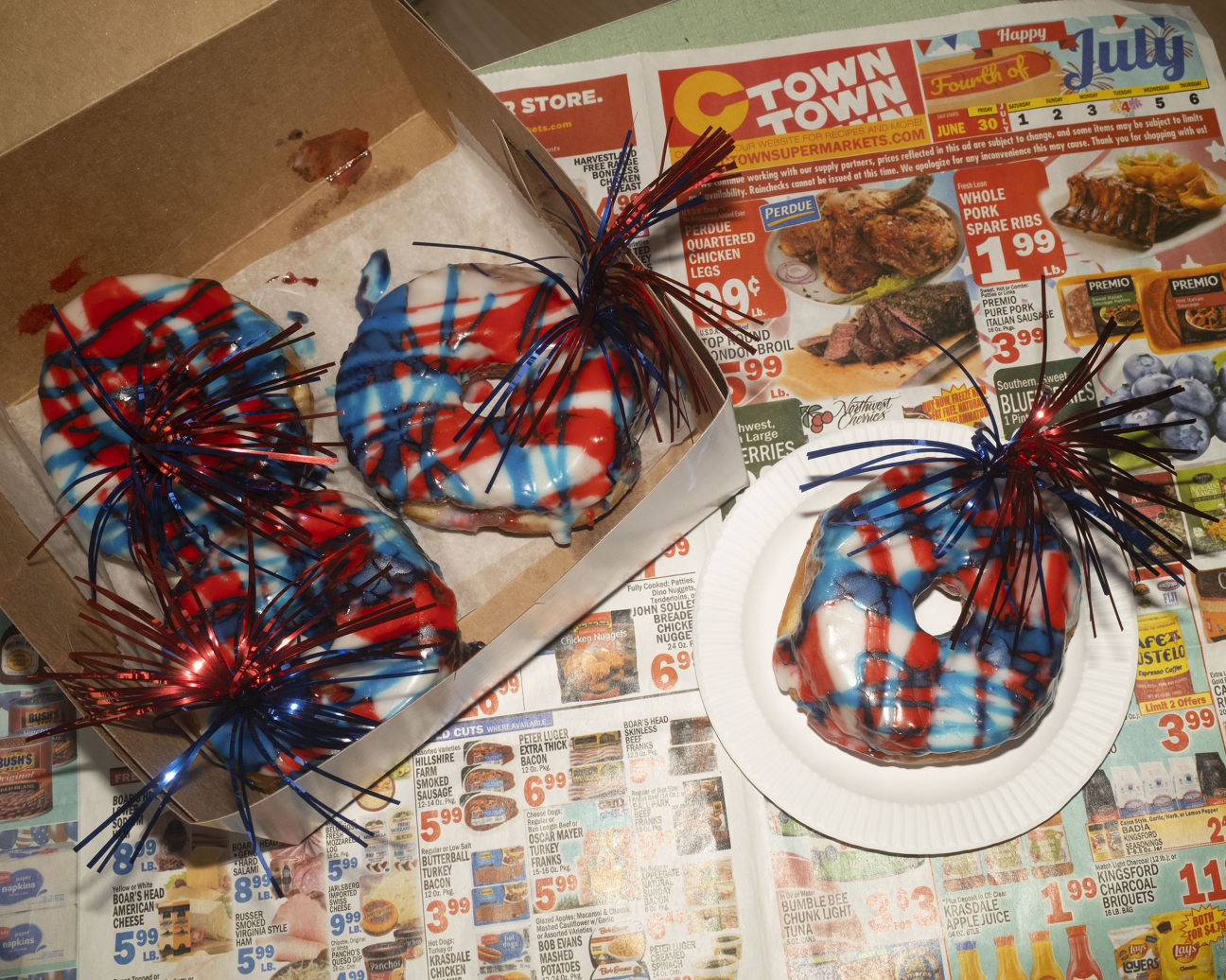
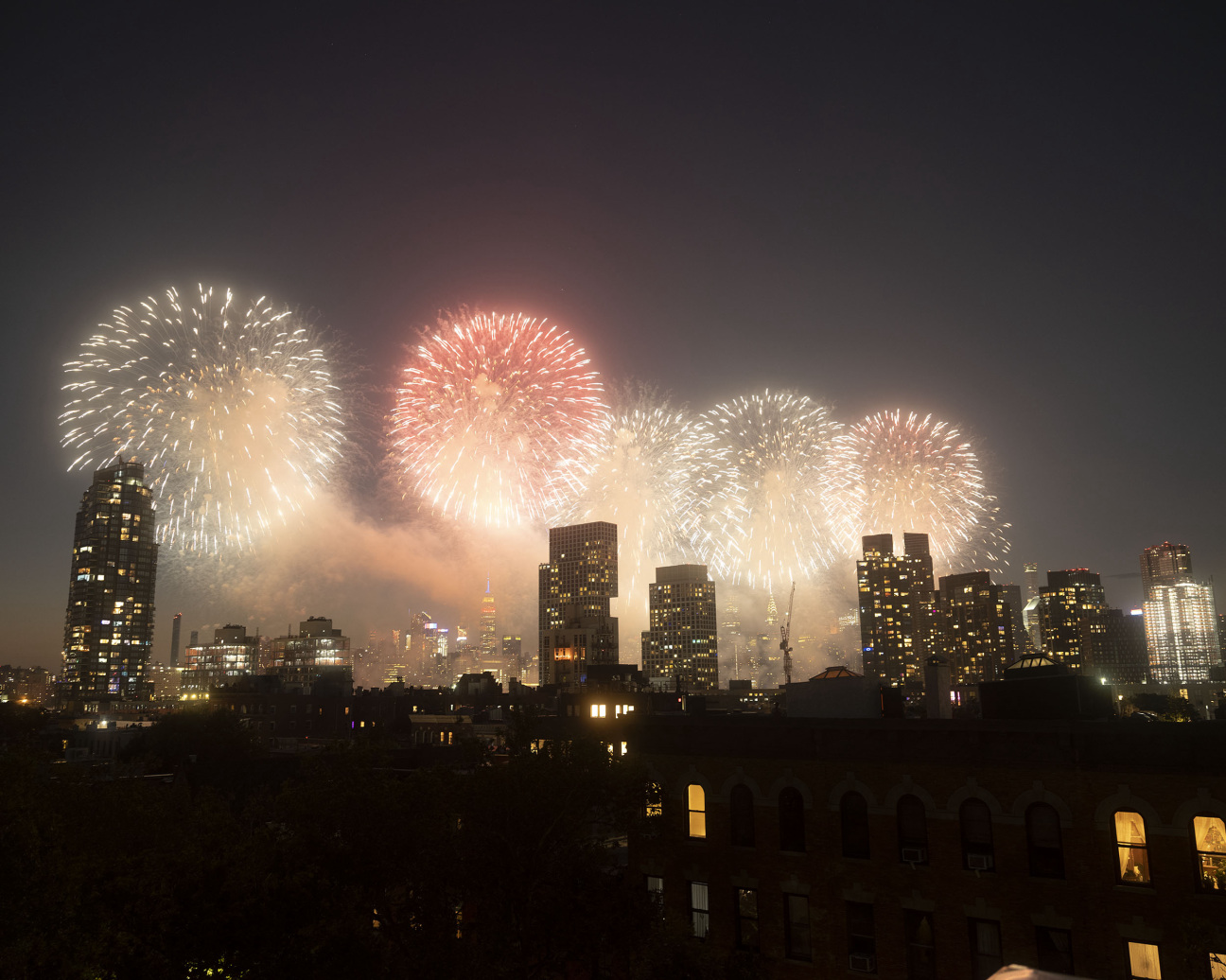
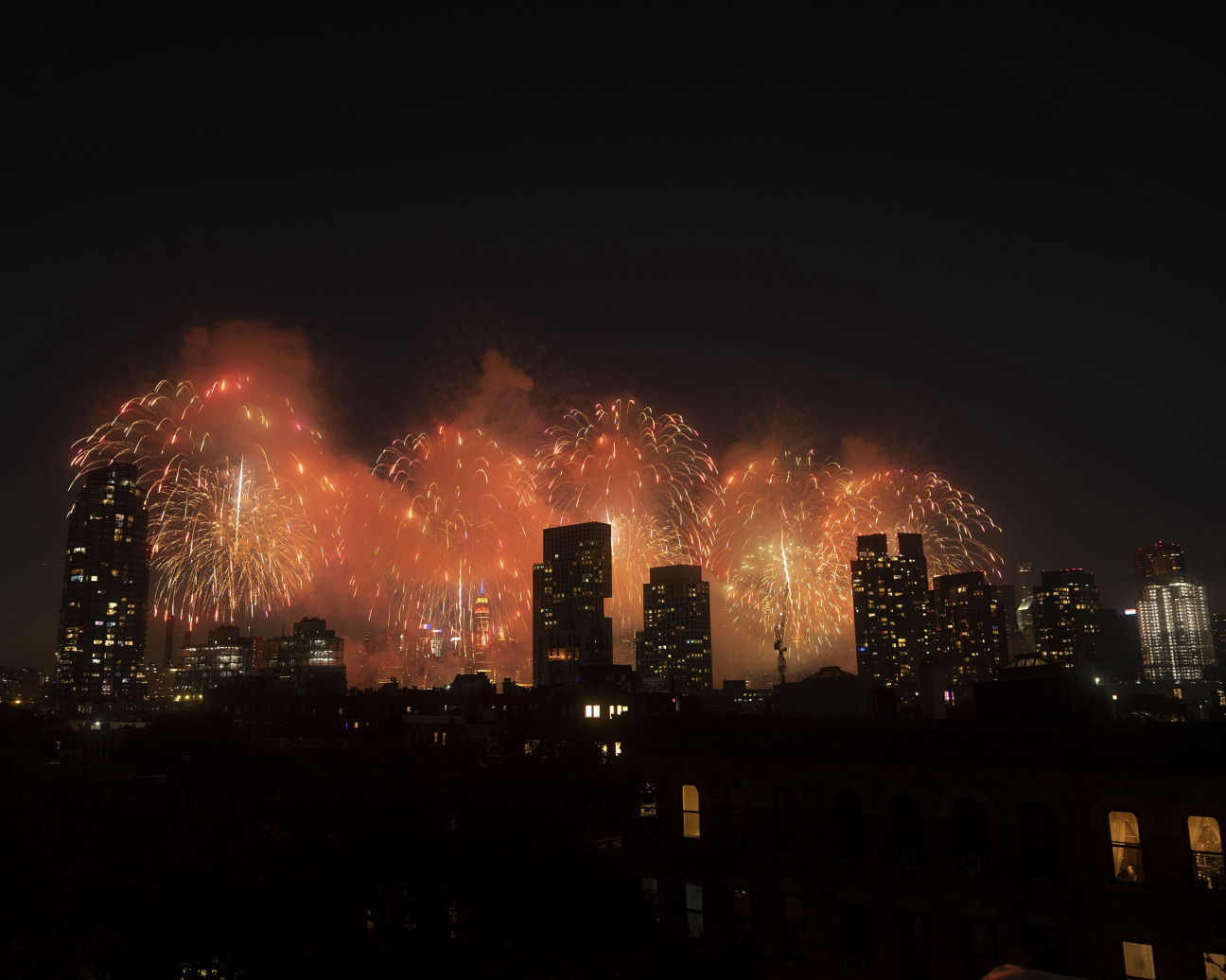
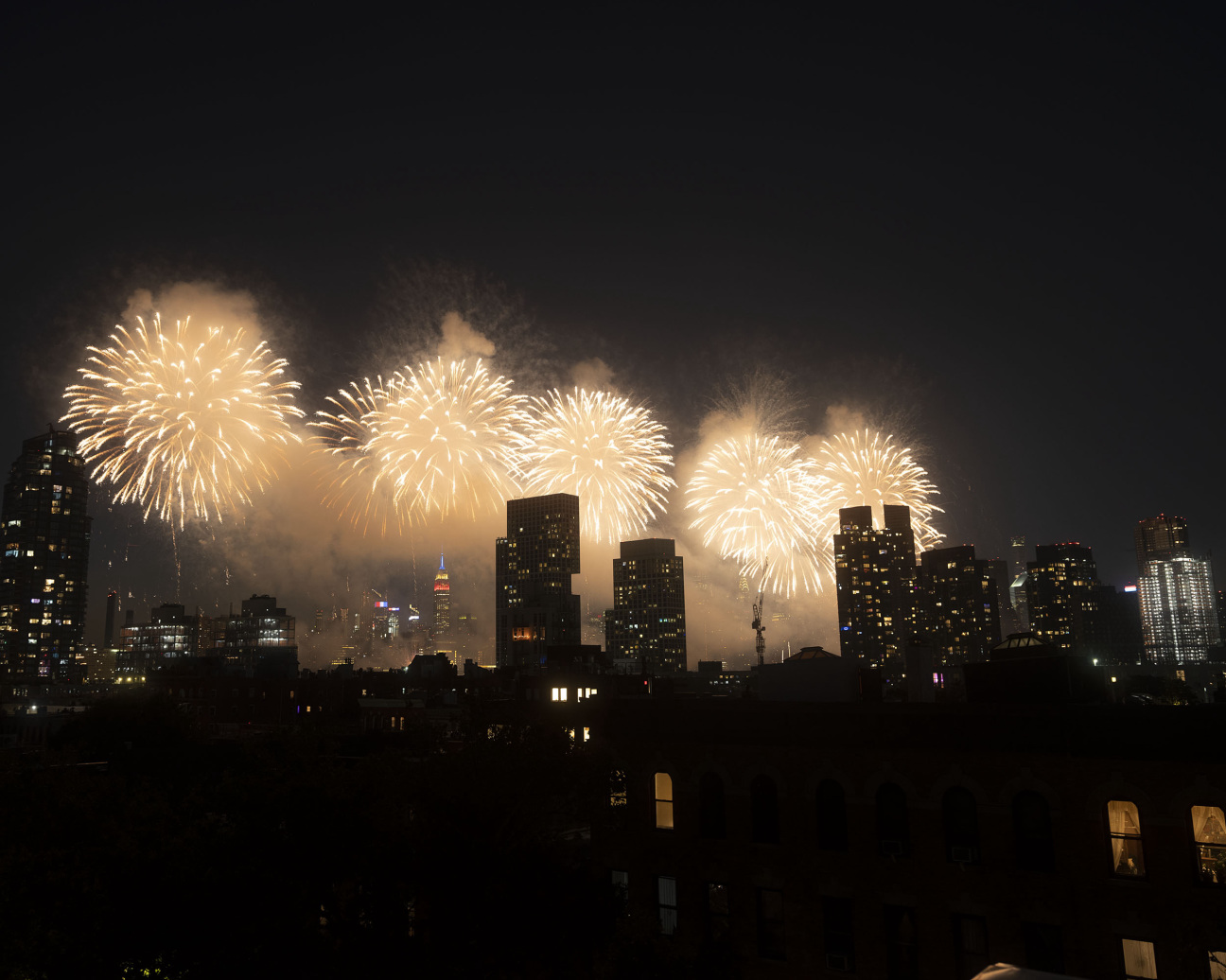
CULTURED: How does your relationship to the United States impact the way you capture your surroundings and subjects?
Nagasaka: I think I see the U.S. in a unique way as an outsider. I am inspired by the love Americans have for their country and the traditional American culture.
CULTURED: How did you take these photos?
Nagasaka: This 4th of July, I had some ideas about what I wanted to do, including going to Coney Island to watch the famous Hot Dog eating contest, but due to the rainy weather I cancelled them all and stayed in my neighborhood—Greenpoint, Brooklyn. In between storms, I went to a local donut shop, Peter Pan, and got July 4th donuts and gave them away to neighbors and friends. In the evening we watched the fireworks on my rooftop. We have the best view.
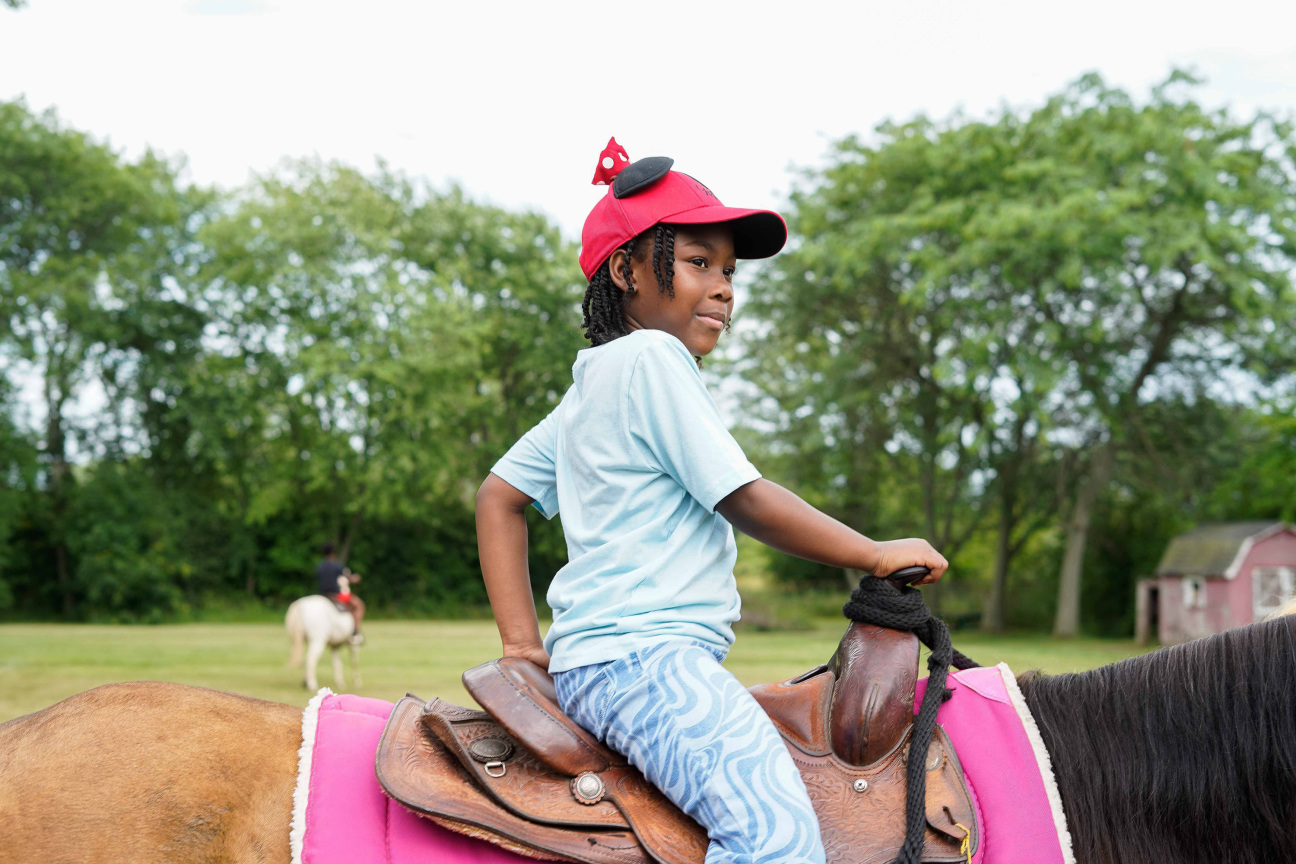
Christian K. Lee Chicago, Illinois
CULTURED: What feelings does the 4th of July evoke for you?
Christian K. Lee: It's complicated. On one hand, I feel a sense of disappointment, especially when we see all the rights that the Supreme Court is rolling back for people of diverse backgrounds. Juneteenth in many ways has replaced the 4th of July for me, in terms of a celebration. However, it’s still a day that can be used to gather with family. Also, as an army veteran, there is a sort of patriotism there. My father also served. Even as an artist I am grateful for things such as freedom of speech that allows us to create. So a part of me feels like that is worth celebrating as well. It’s a very complicated day for me.
CULTURED: What’s your earliest memory of the holiday?
Lee: I remember being a child and my father purchasing and popping fireworks. It seemed to always be a competition with the neighbors. It was always a great time for food, music, and family. I enjoyed that.
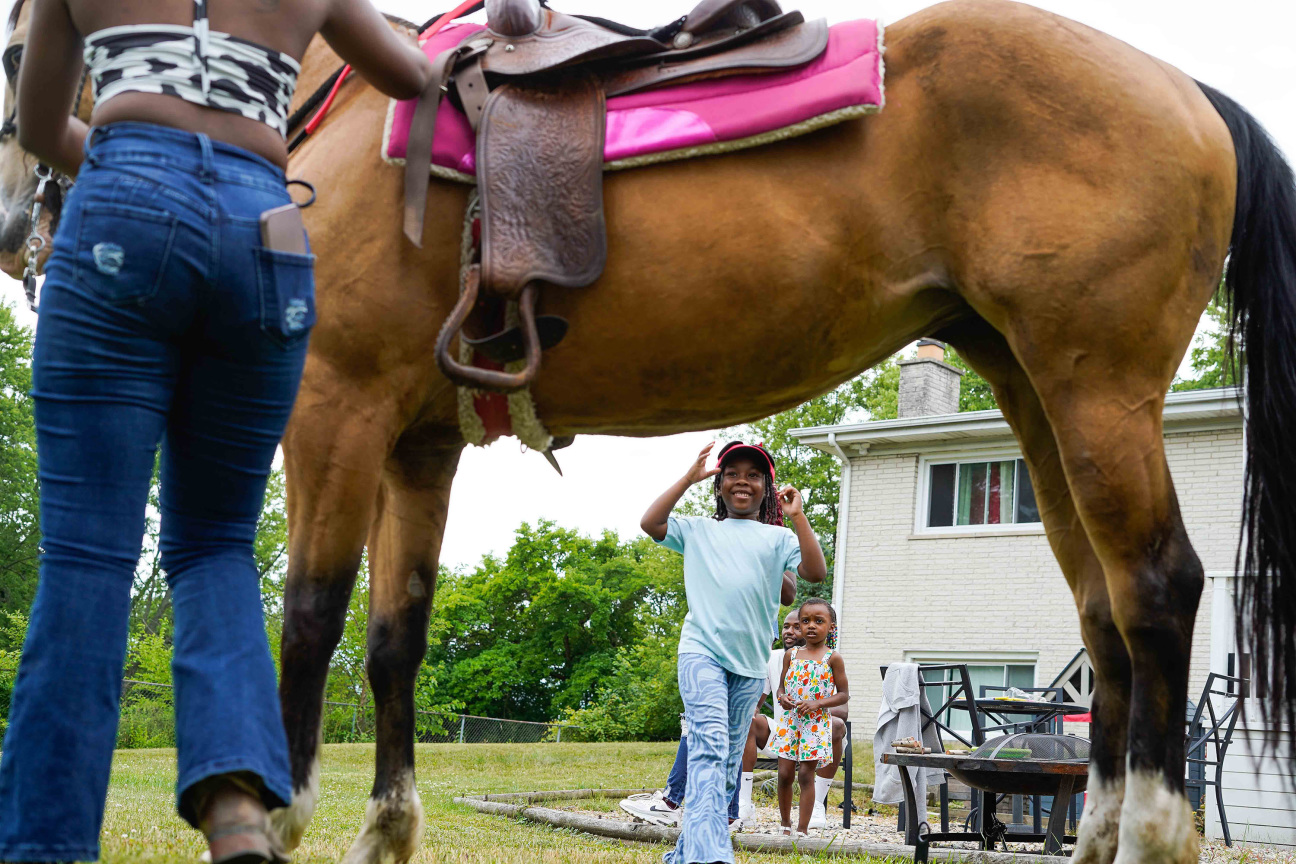
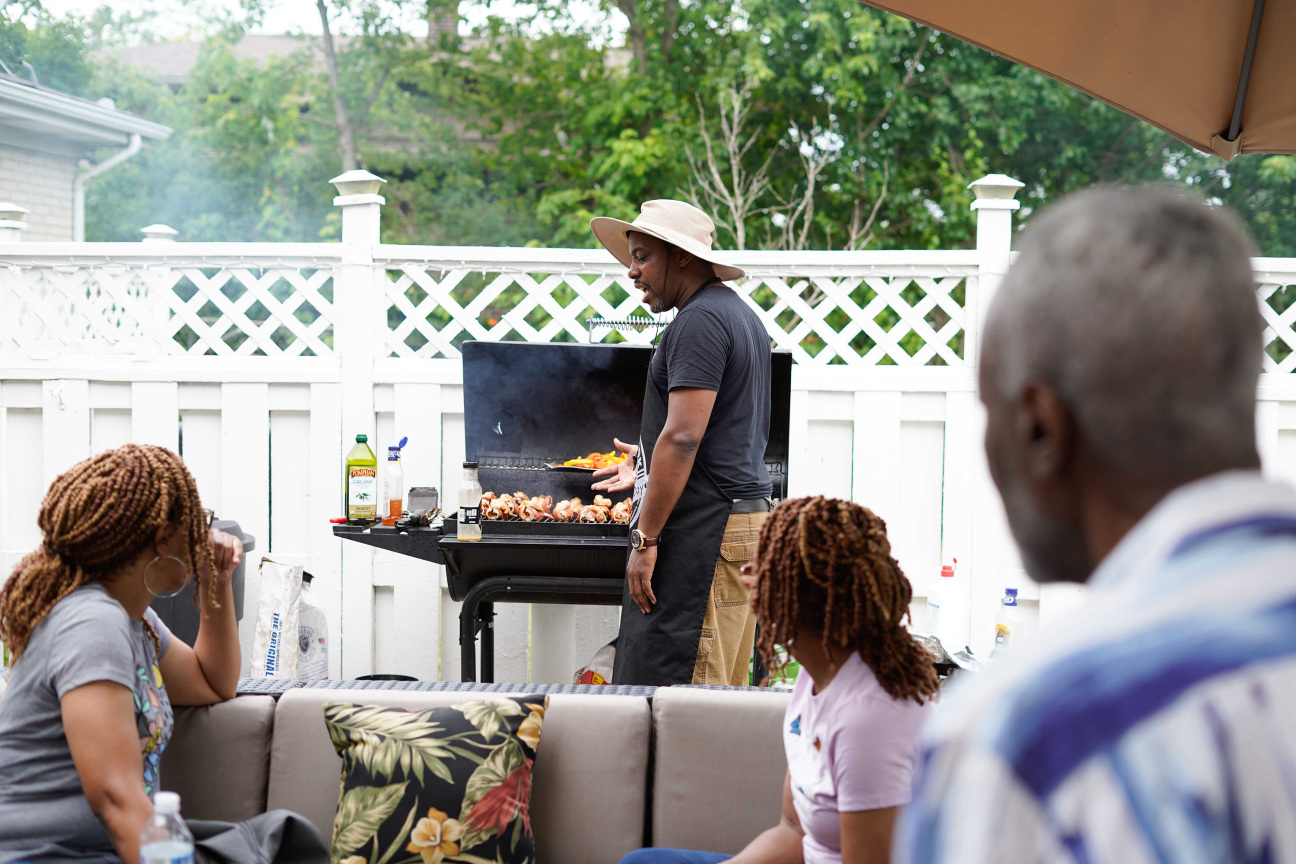
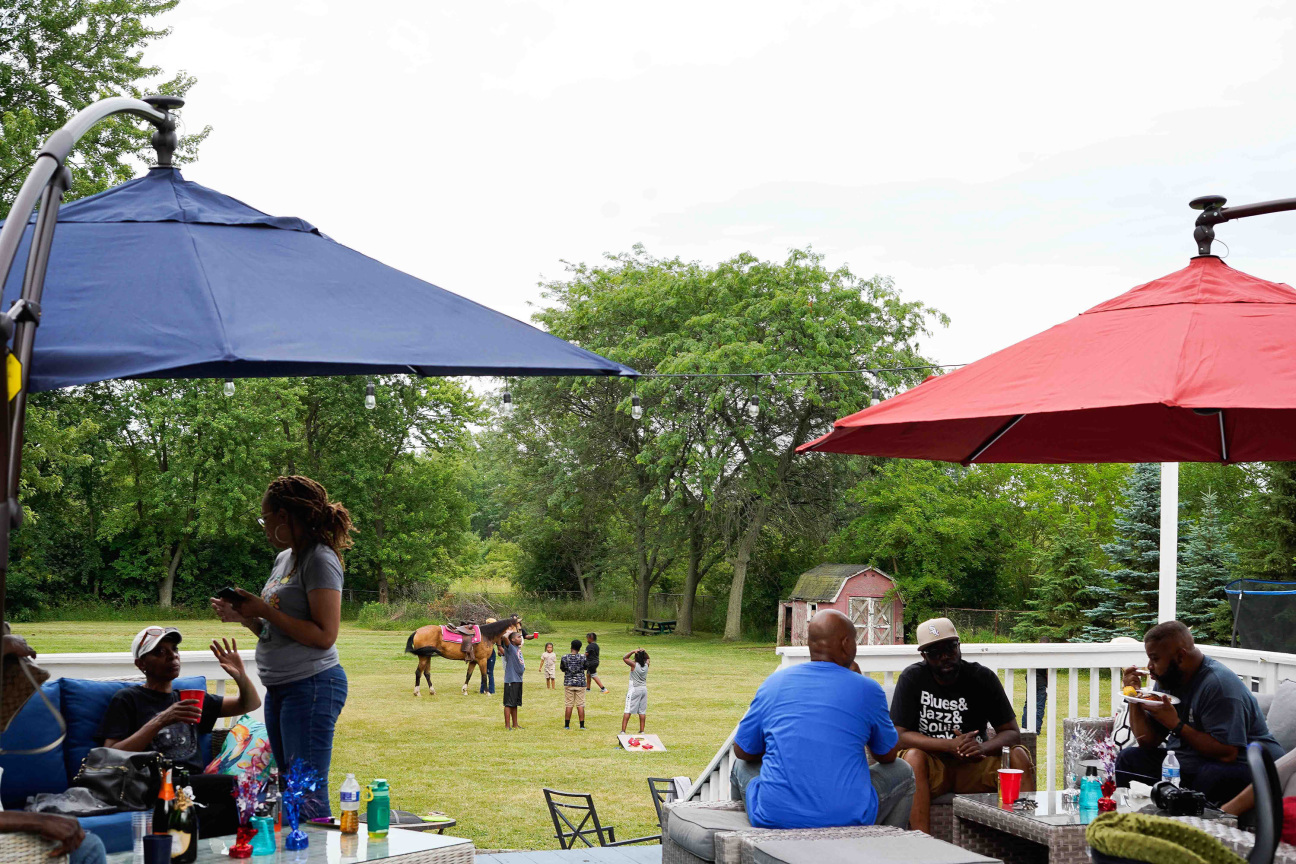
CULTURED: How does your relationship to the United States impact the way you capture your surroundings and subjects?
Lee: As an artist, I feel obligated to both appreciate and criticize life in America. It’s rare to have the ability to share your own story. I remember people only coming to the neighborhood to write and photograph negative things. It feels empowering to tell it from your side. I want everyone to have that feeling. Oftentimes, people of color’s stories are told and sold without their input. I noticed this and that has motivated me to work on the projects that I have chosen such as my series "Cancelled Prom" or "Armed Doesn’t Mean Dangerous."
CULTURED: Where did you take these photos?
Lee: I decided to photograph my family’s gathering with a specific focus on the children because it helps me stay focused on why I create. I want them to have a better future. Also, the last four years I was serving in the army, so I try my hardest to bring family together. The 4th of July is a good time to do that. I hope that someday they can celebrate the day with great pride.



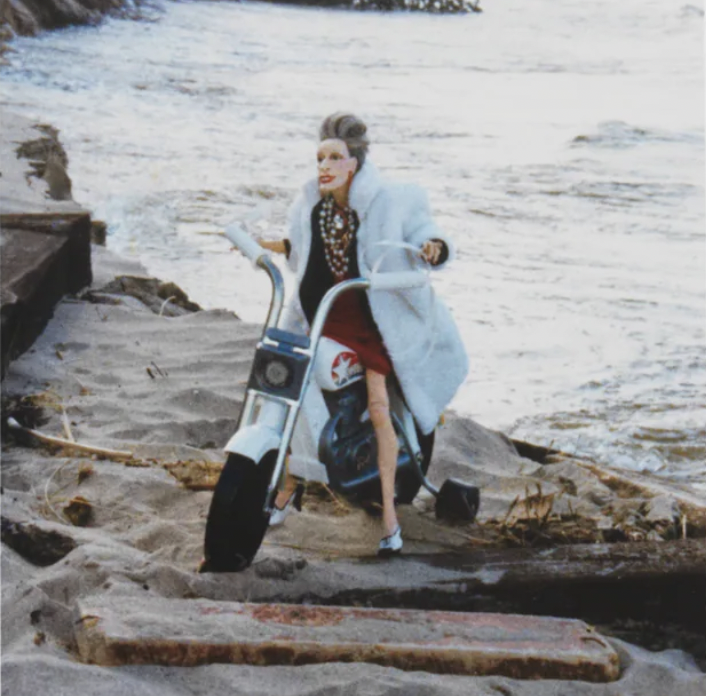


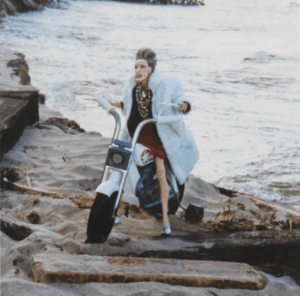



 in your life?
in your life?

